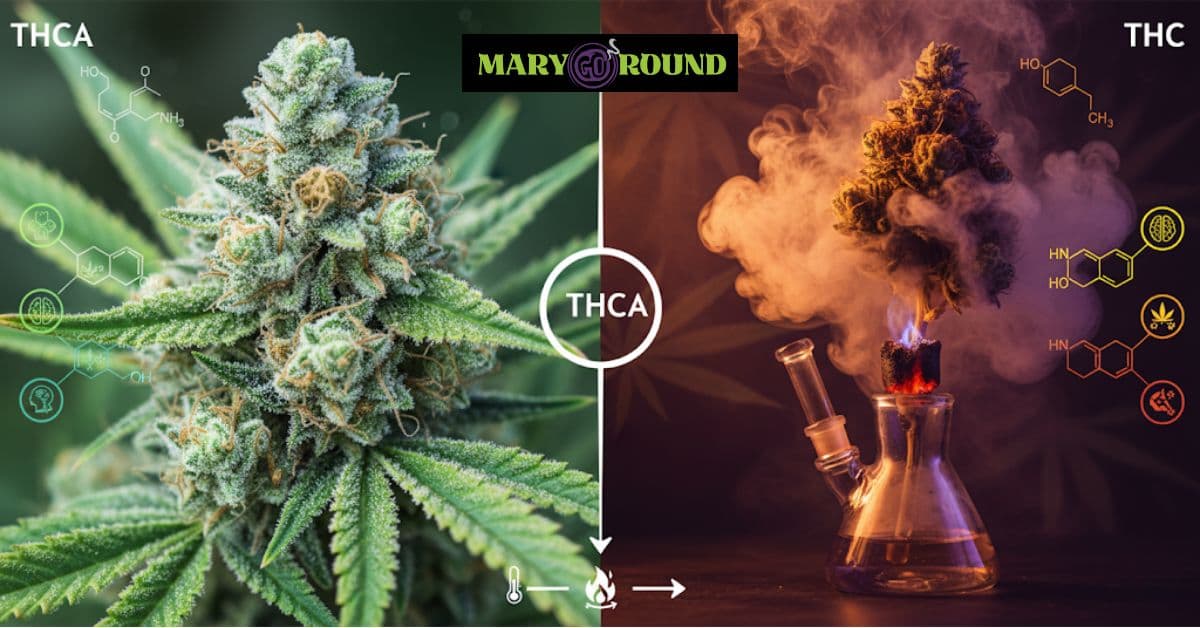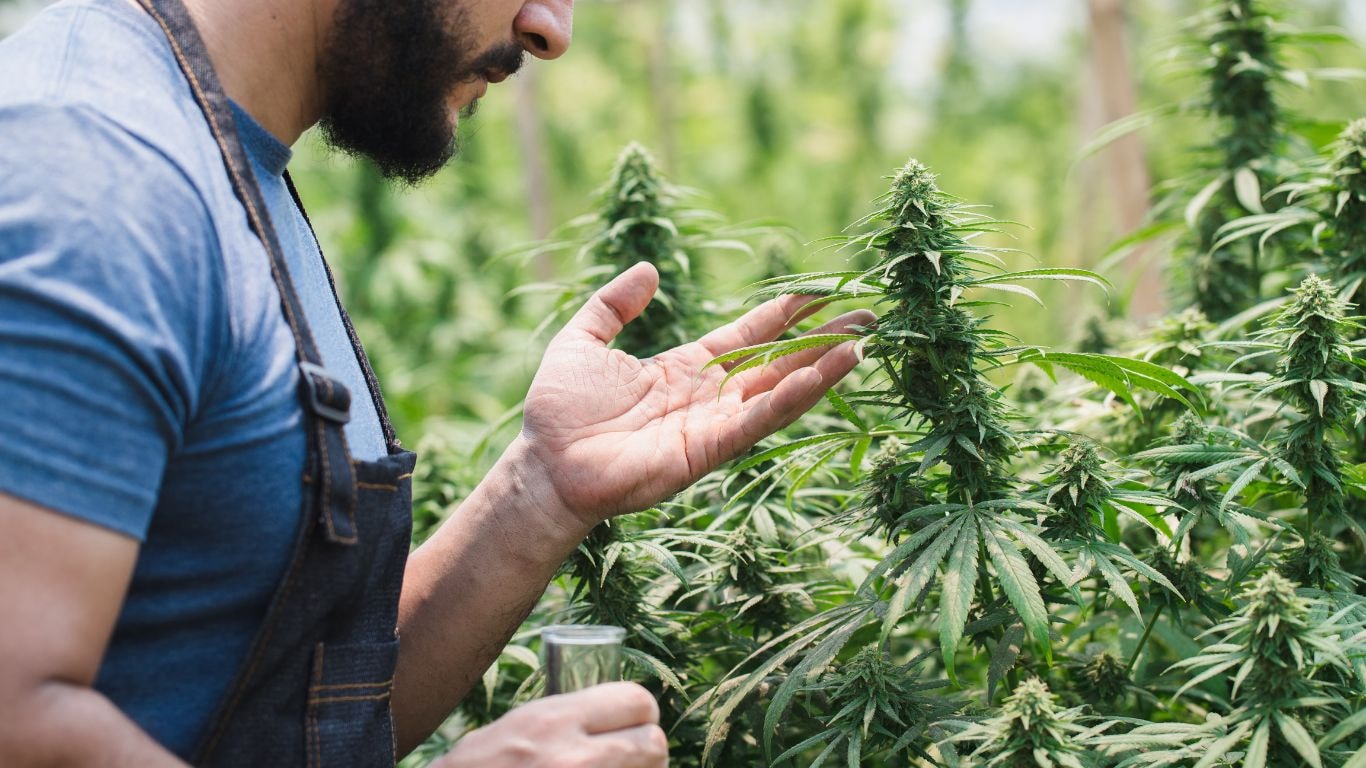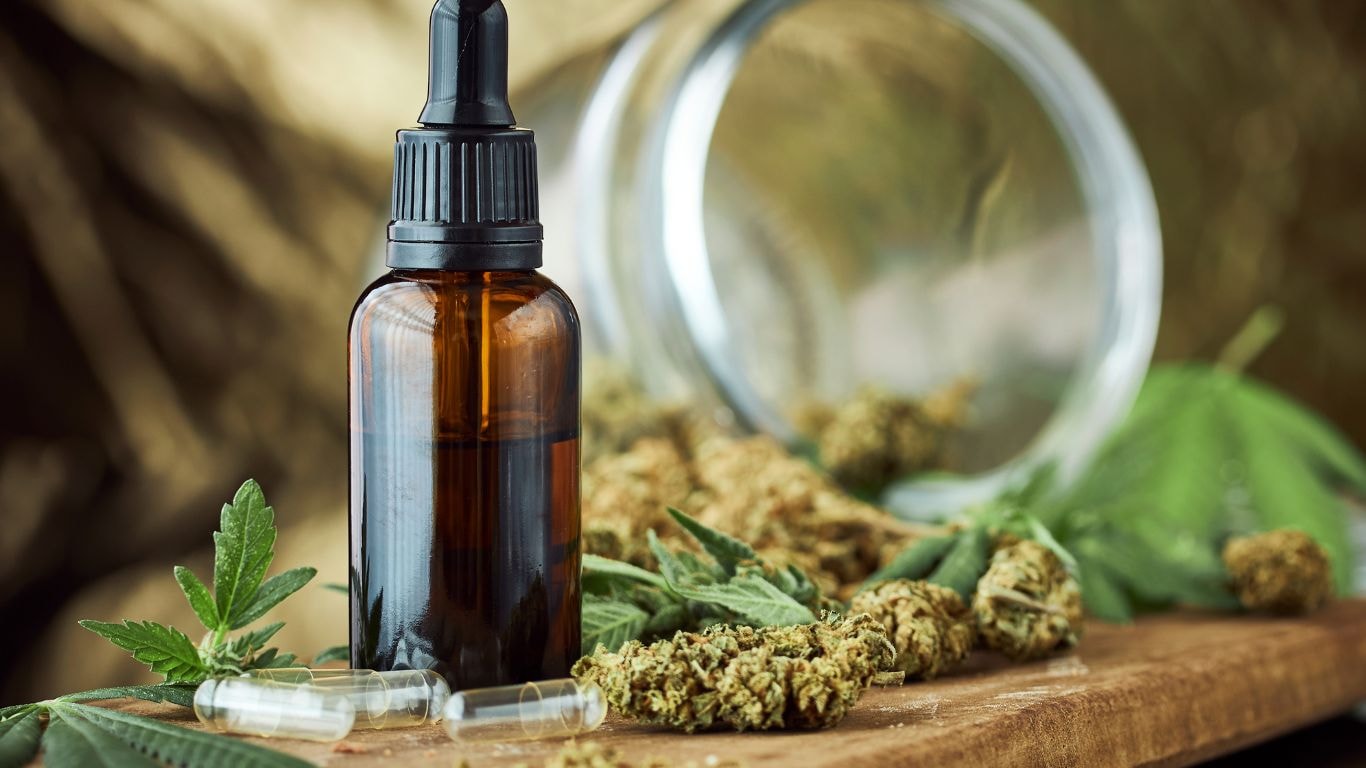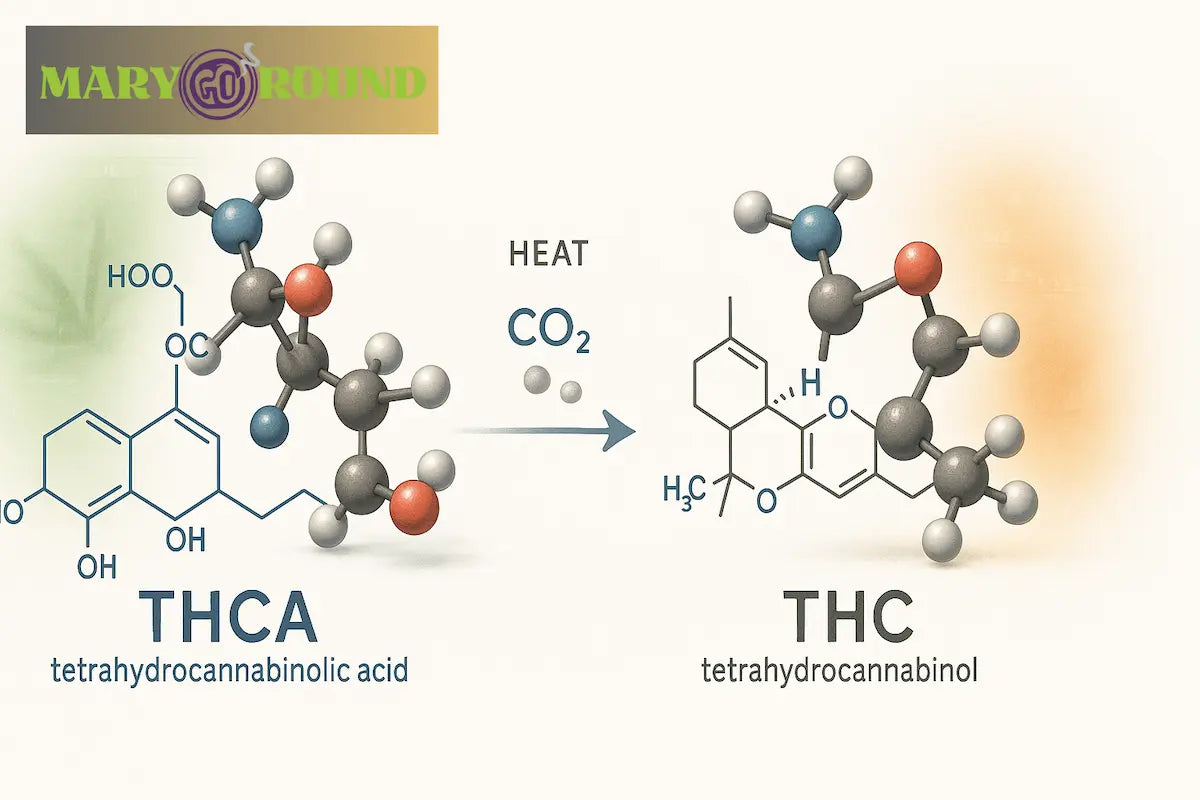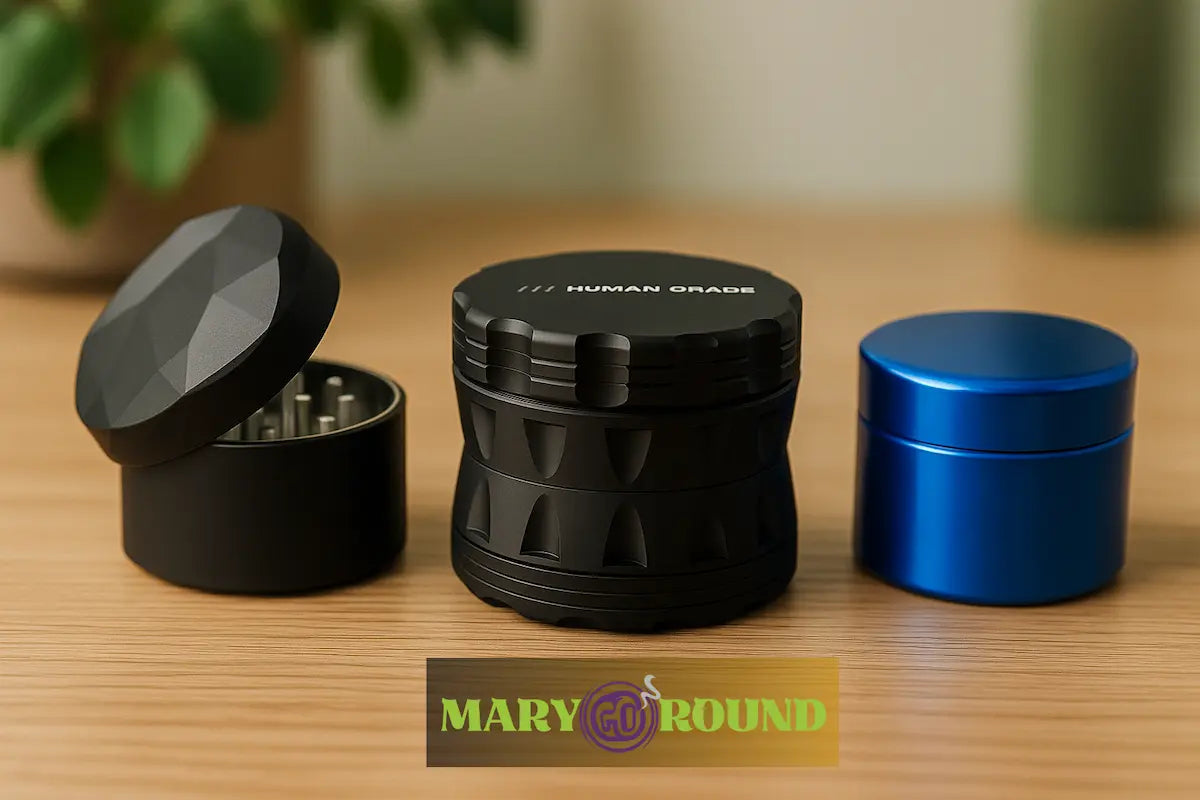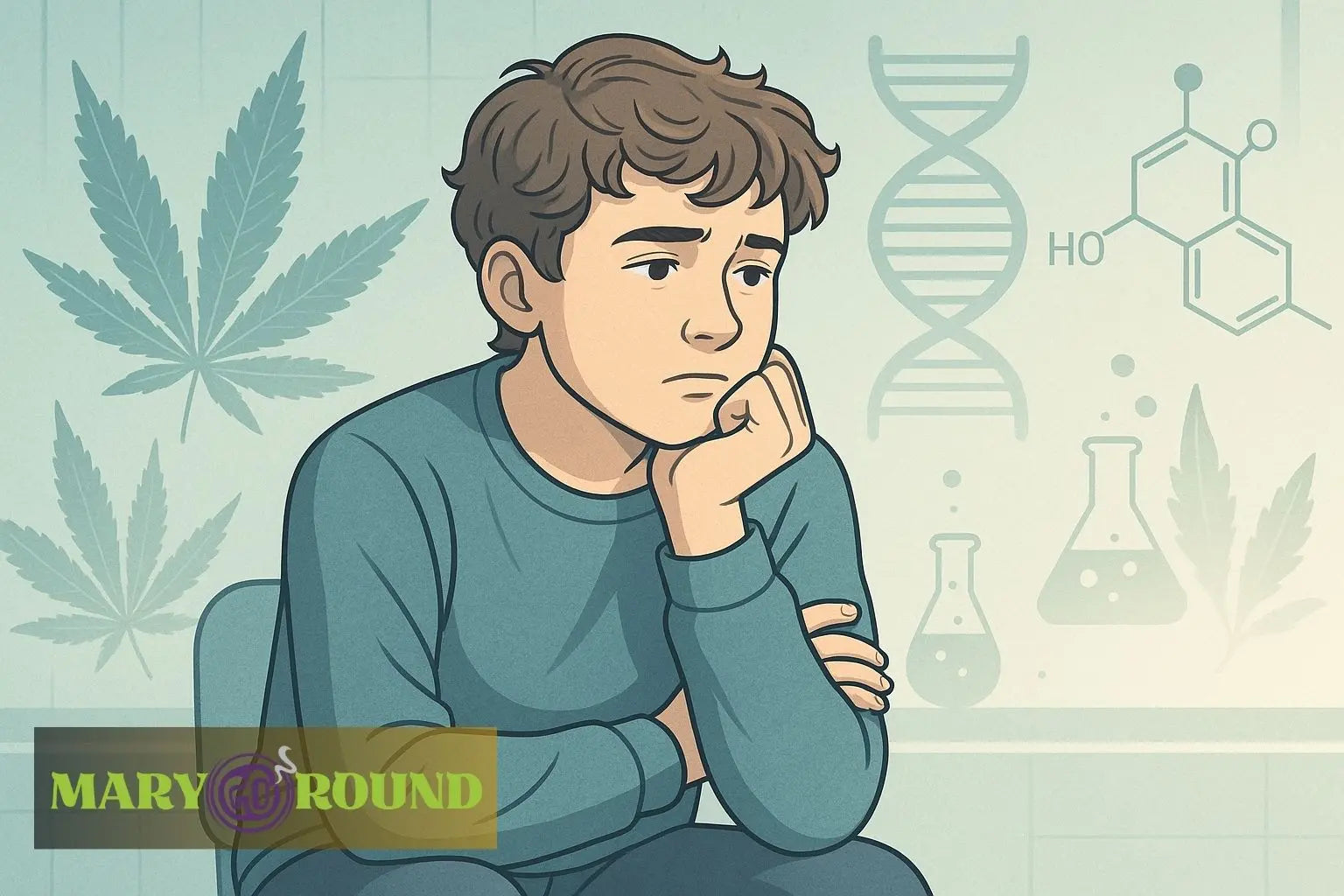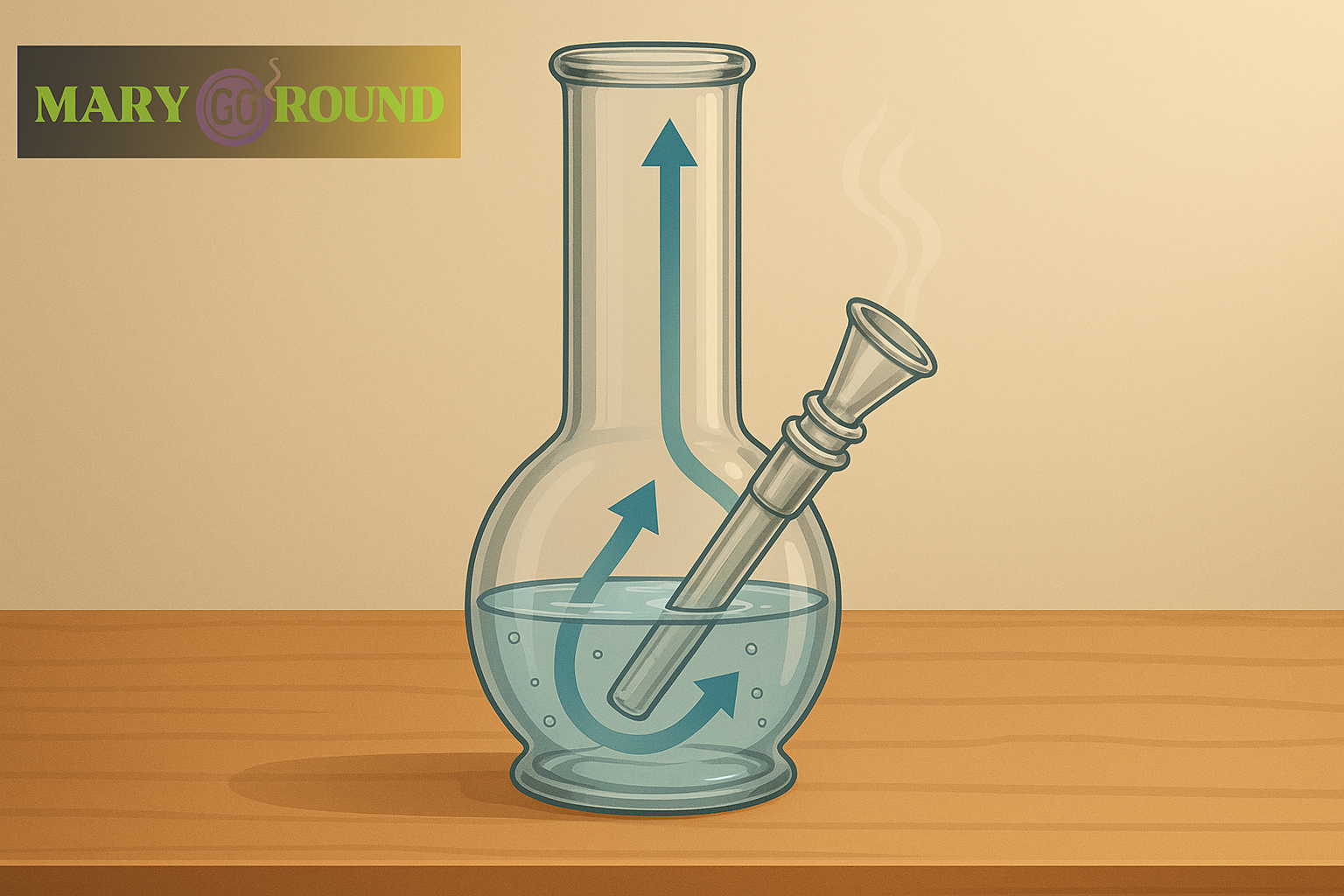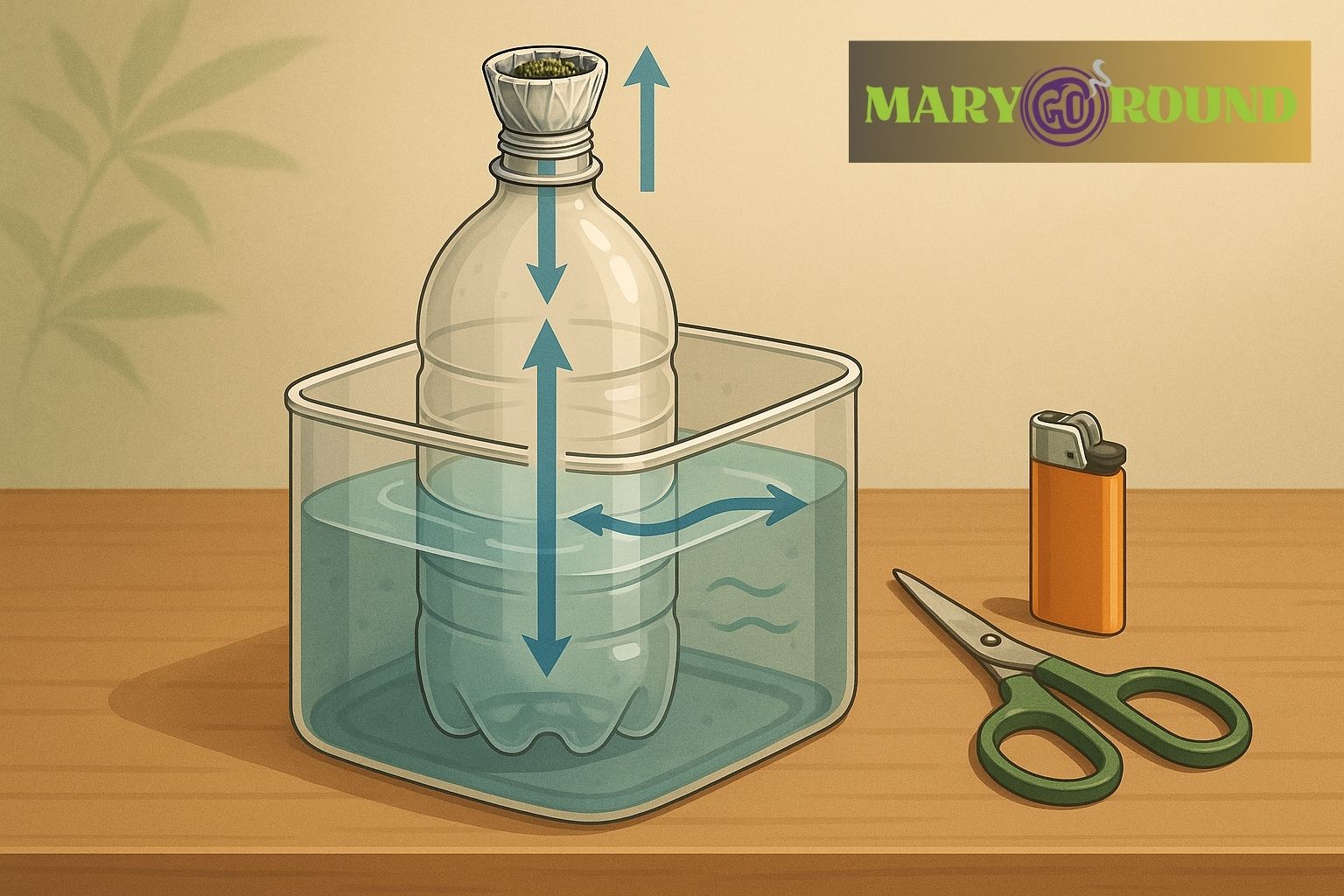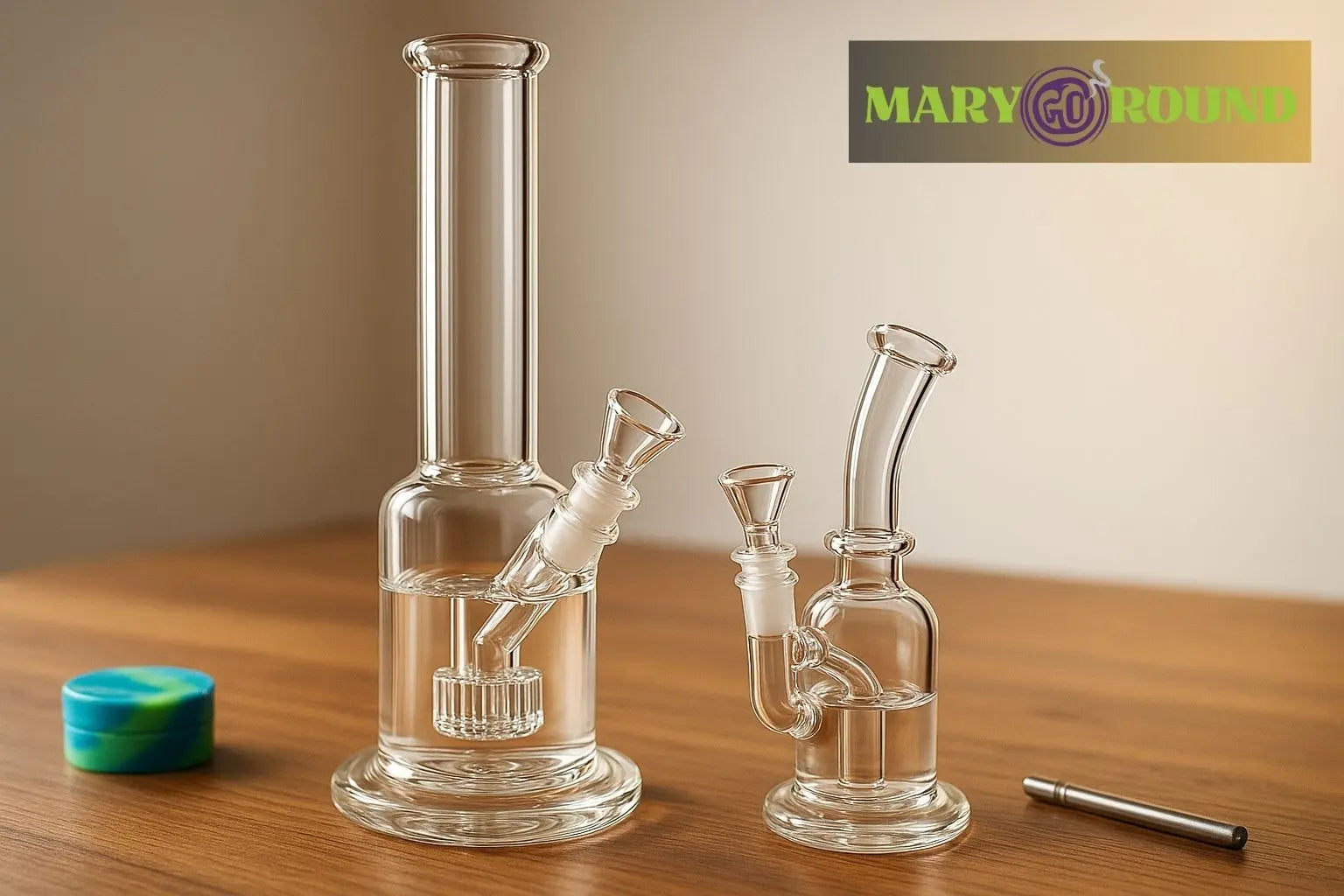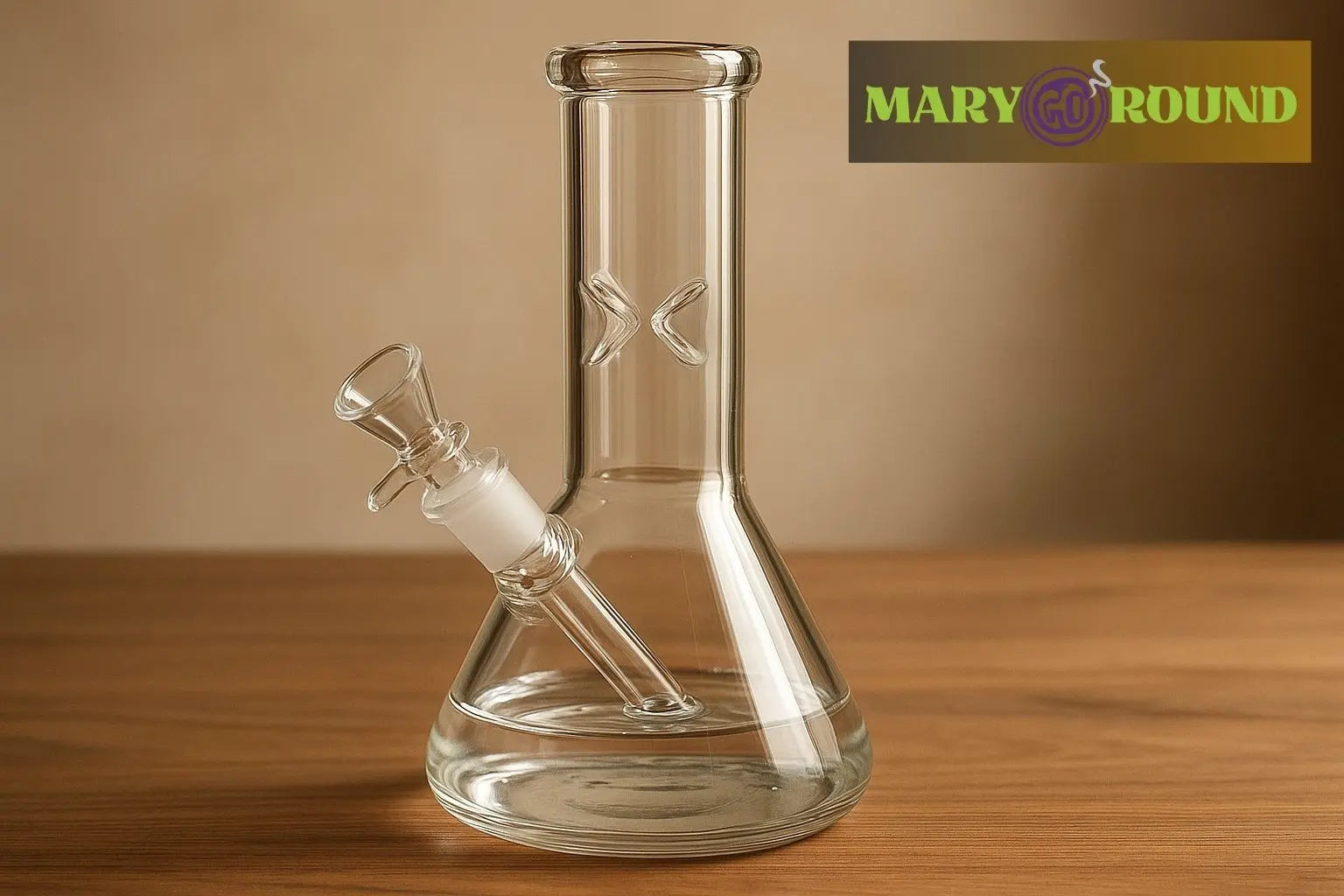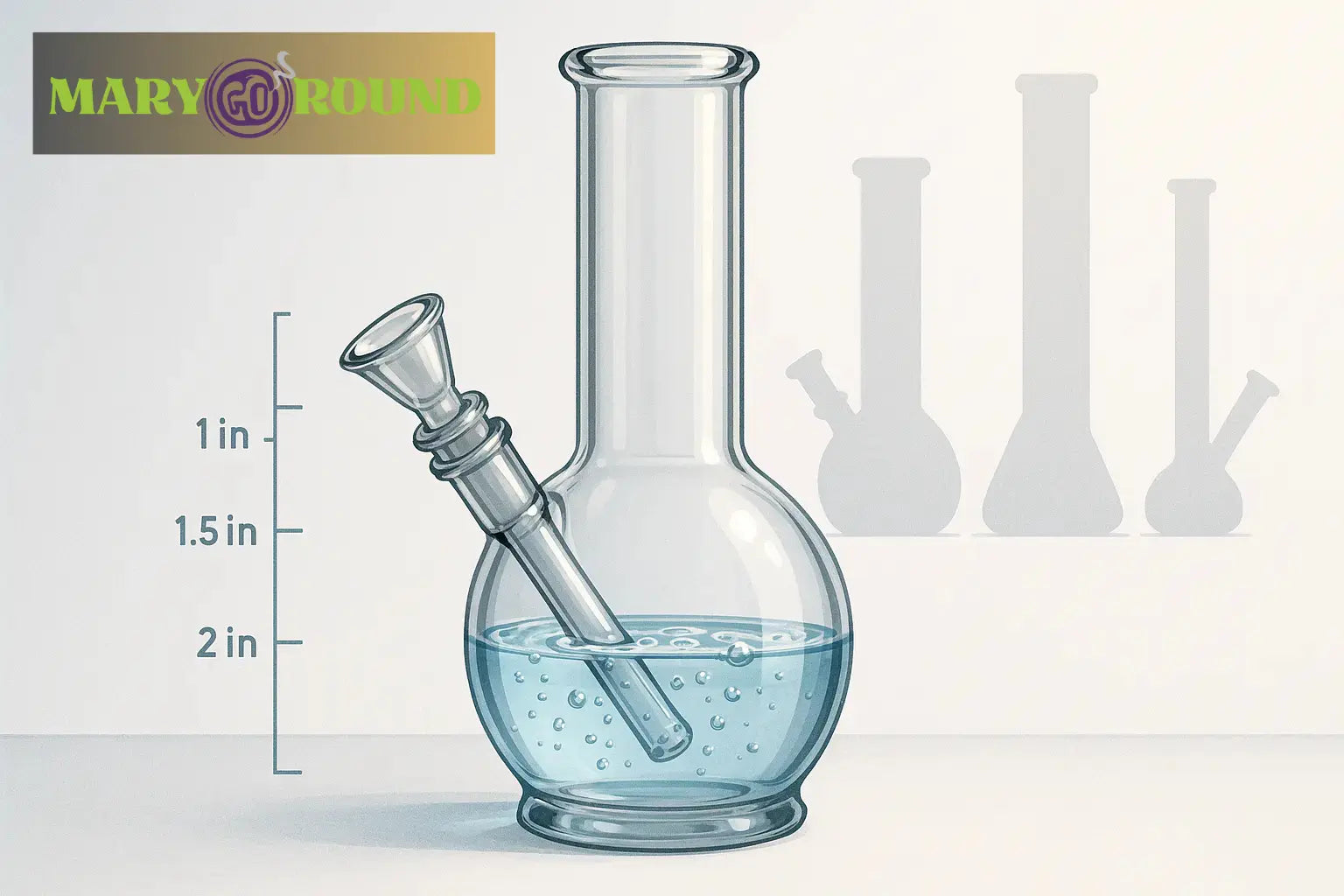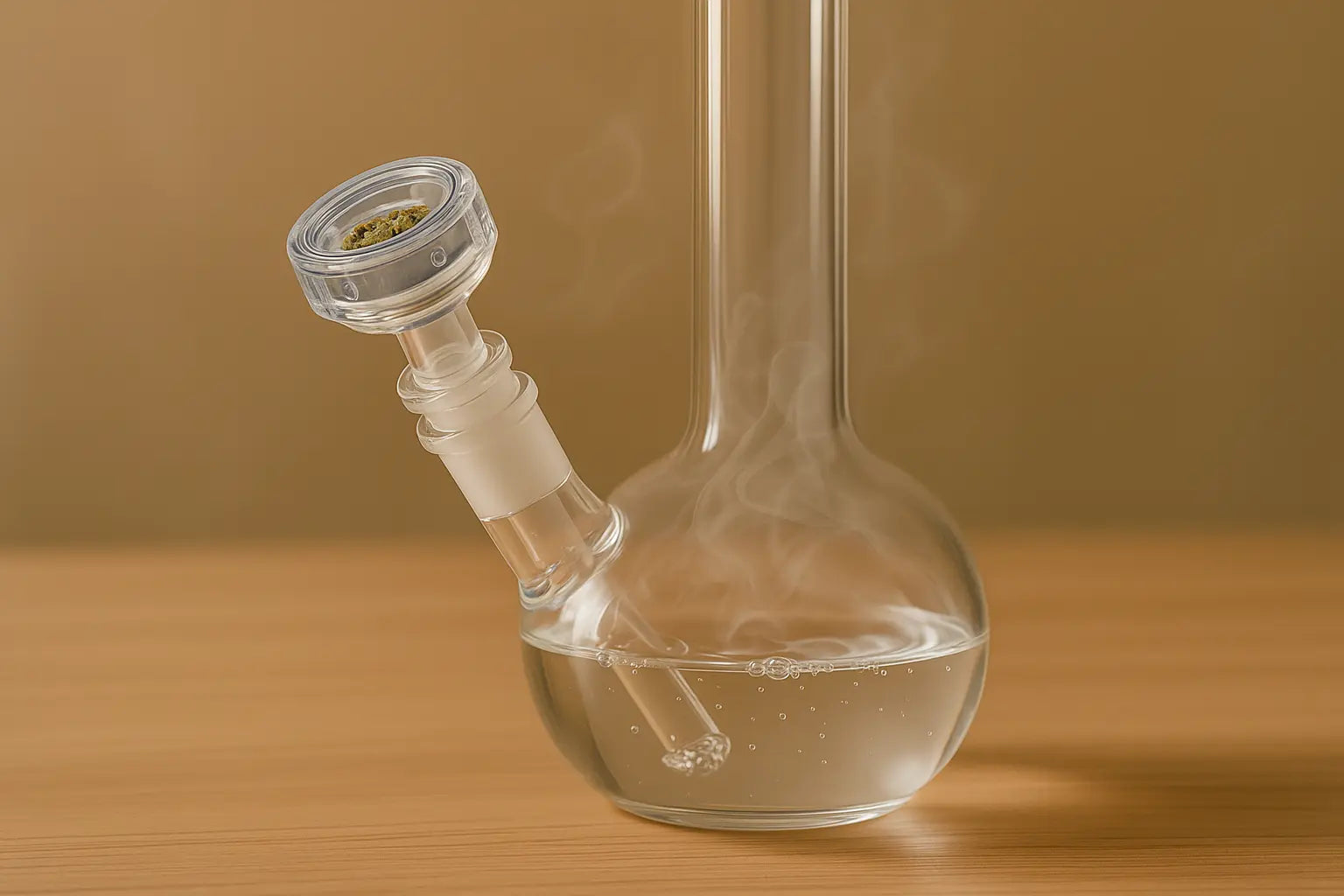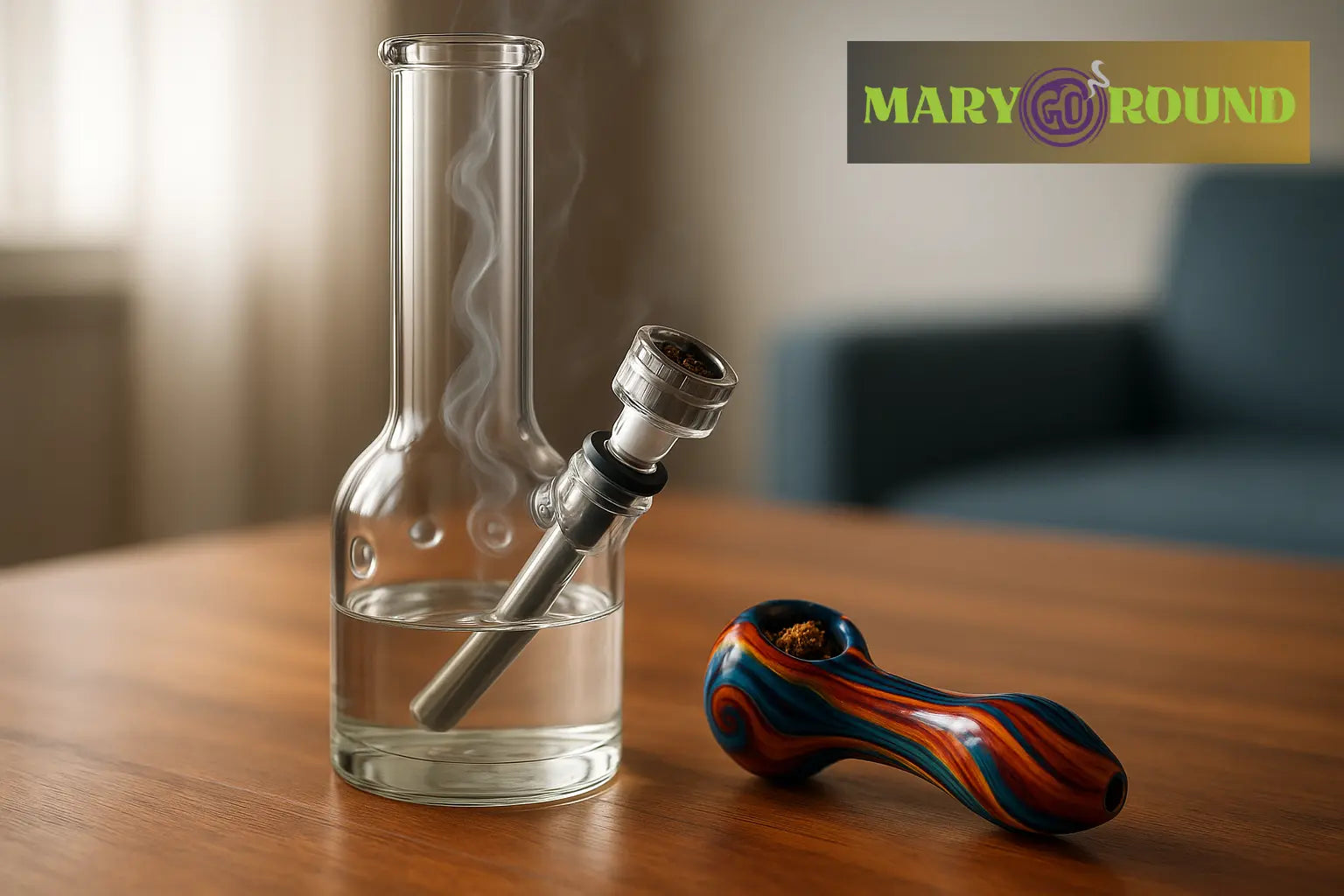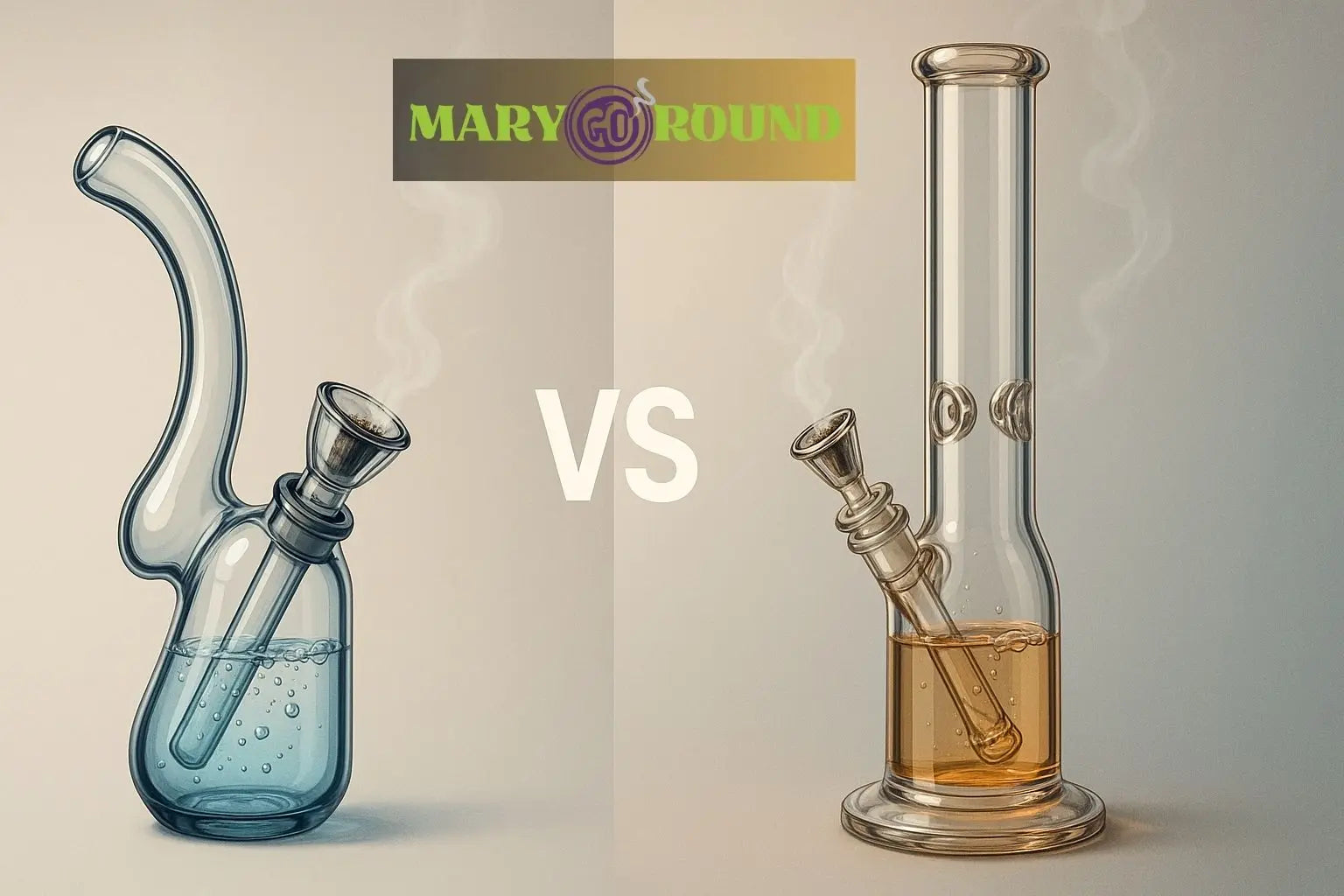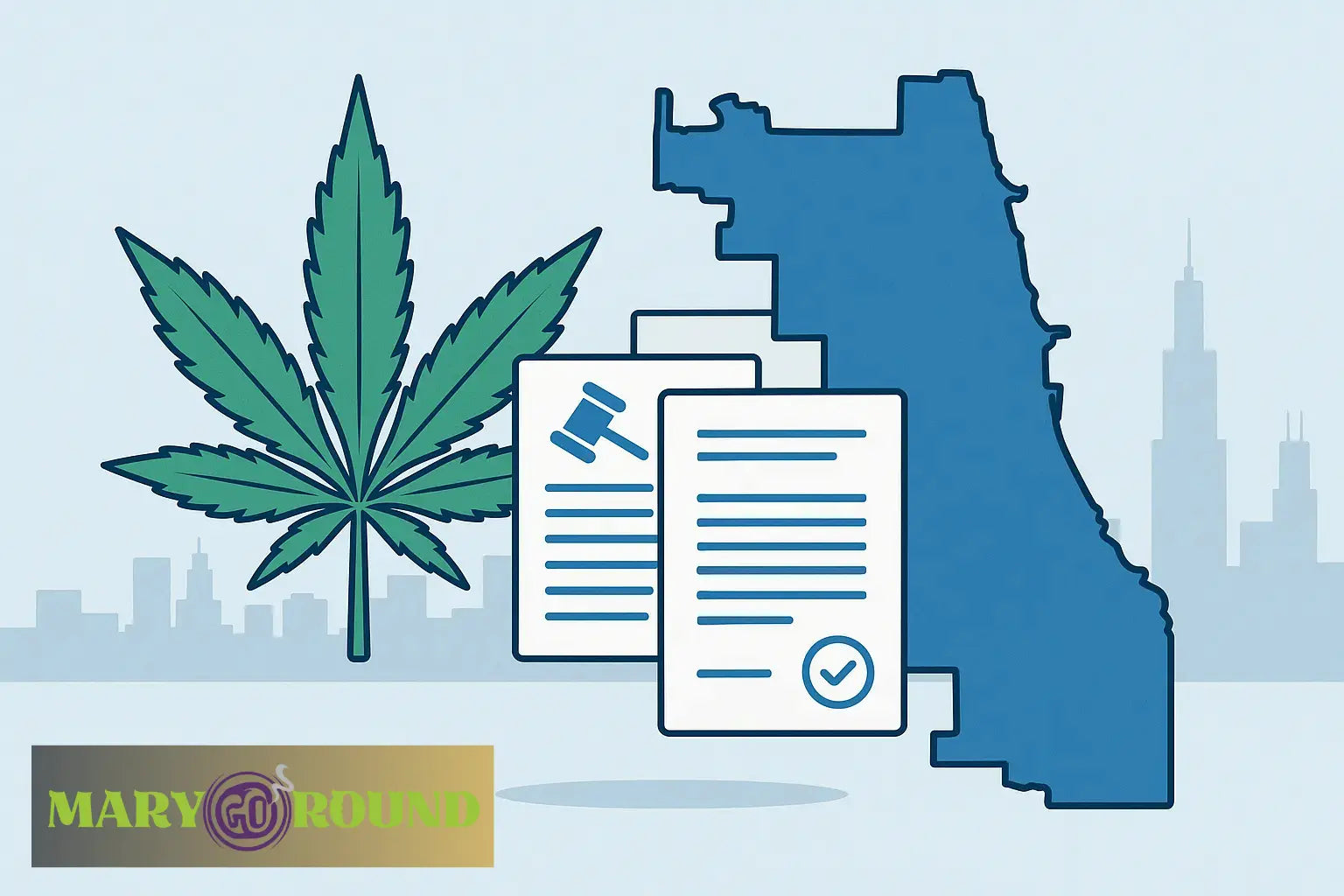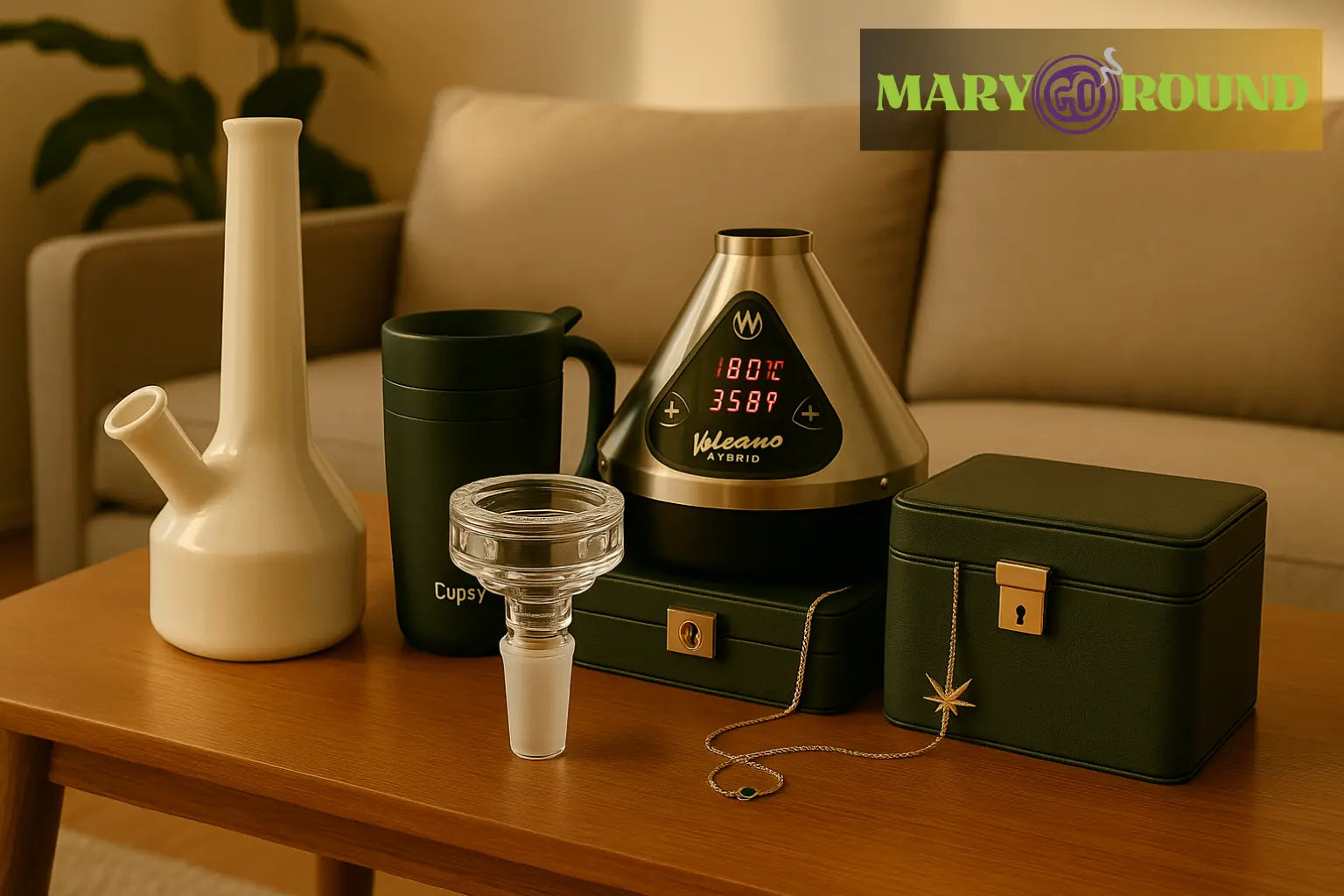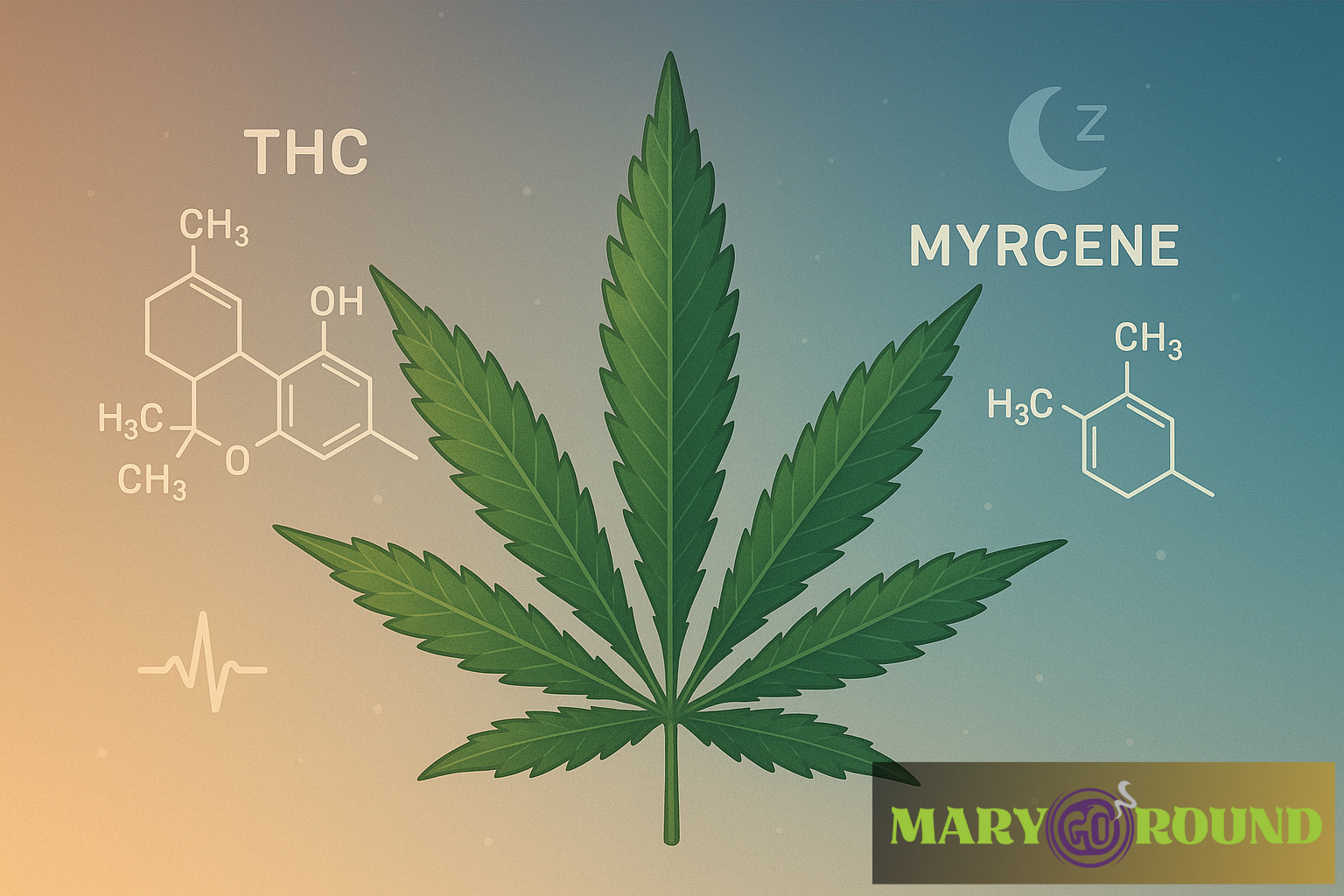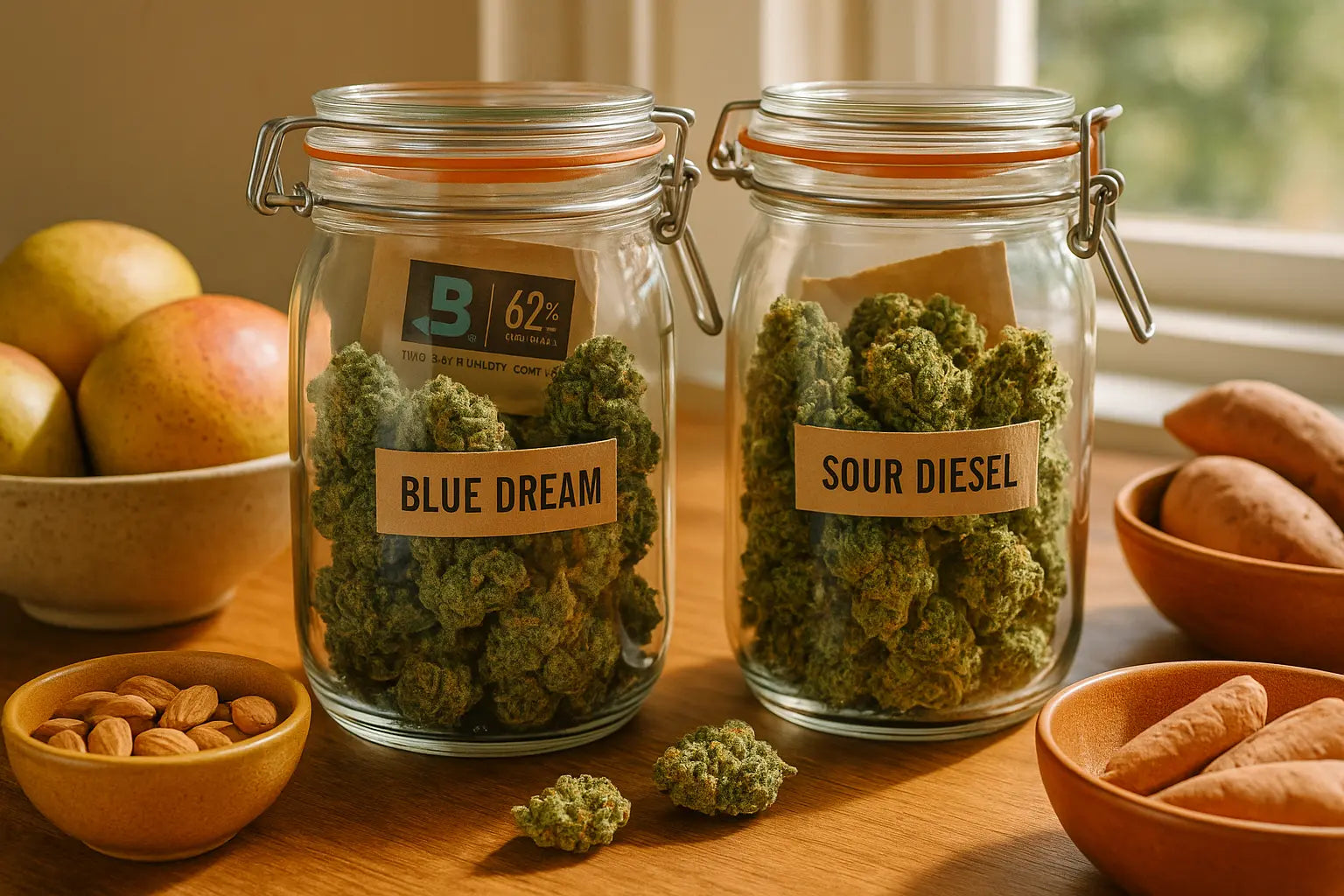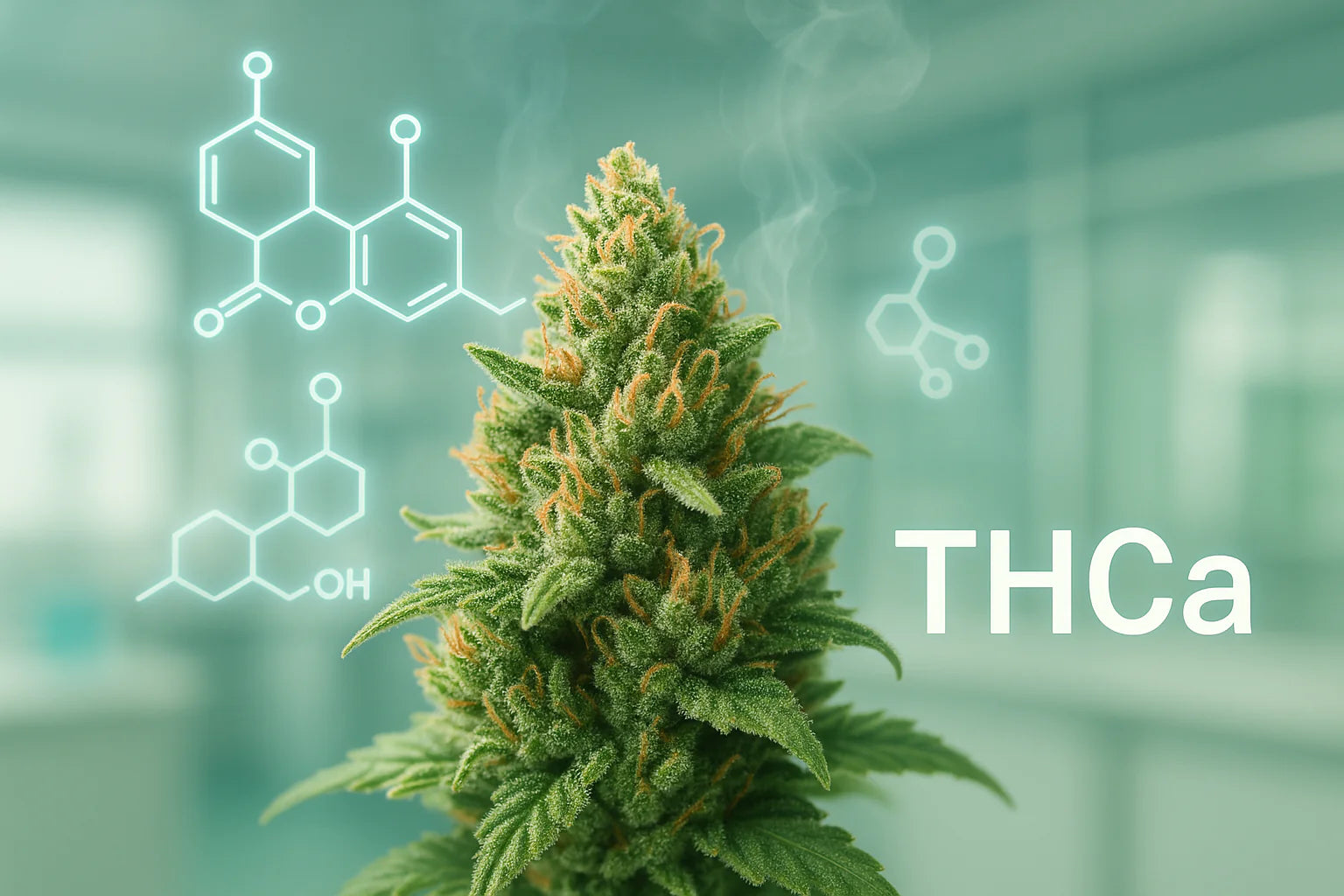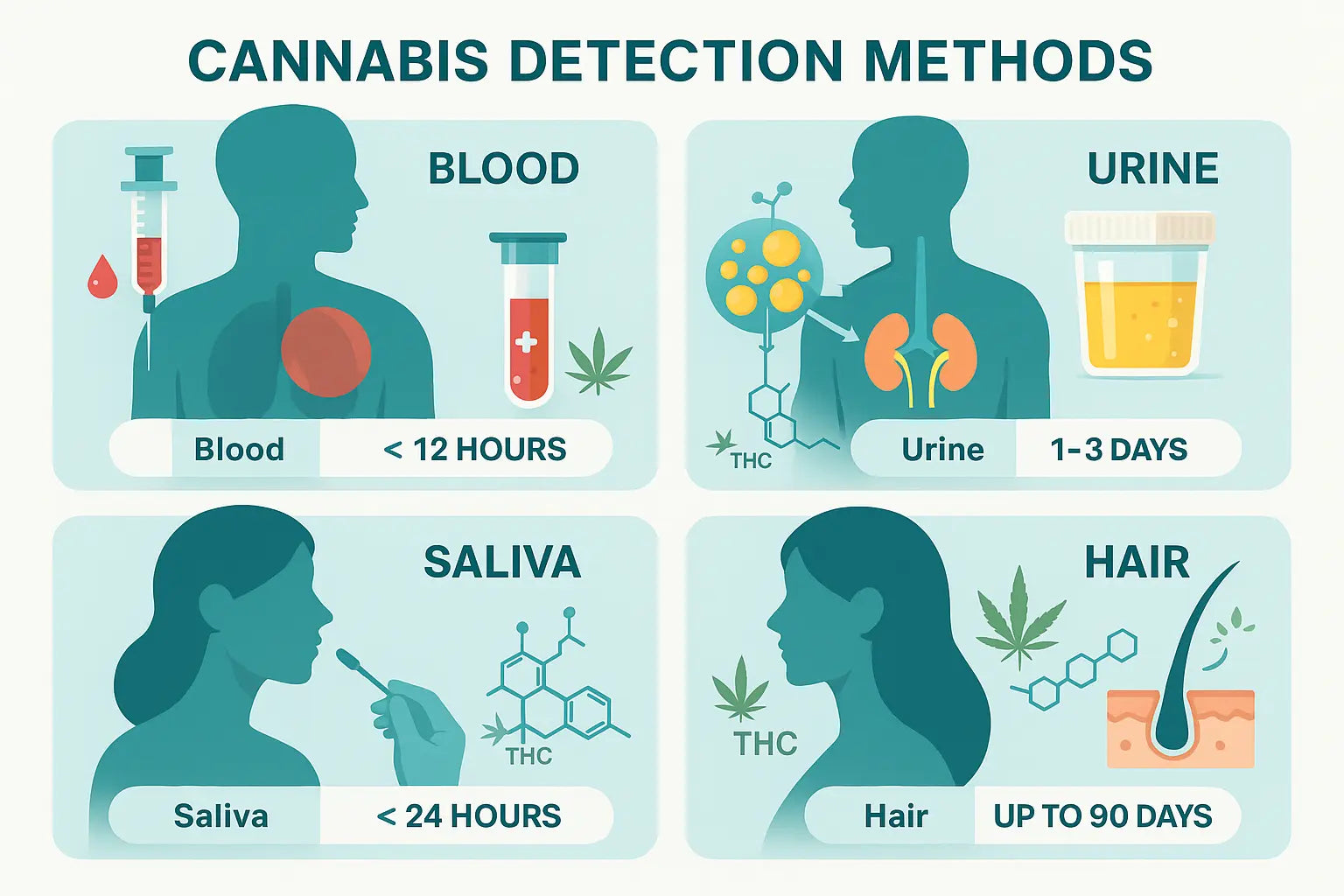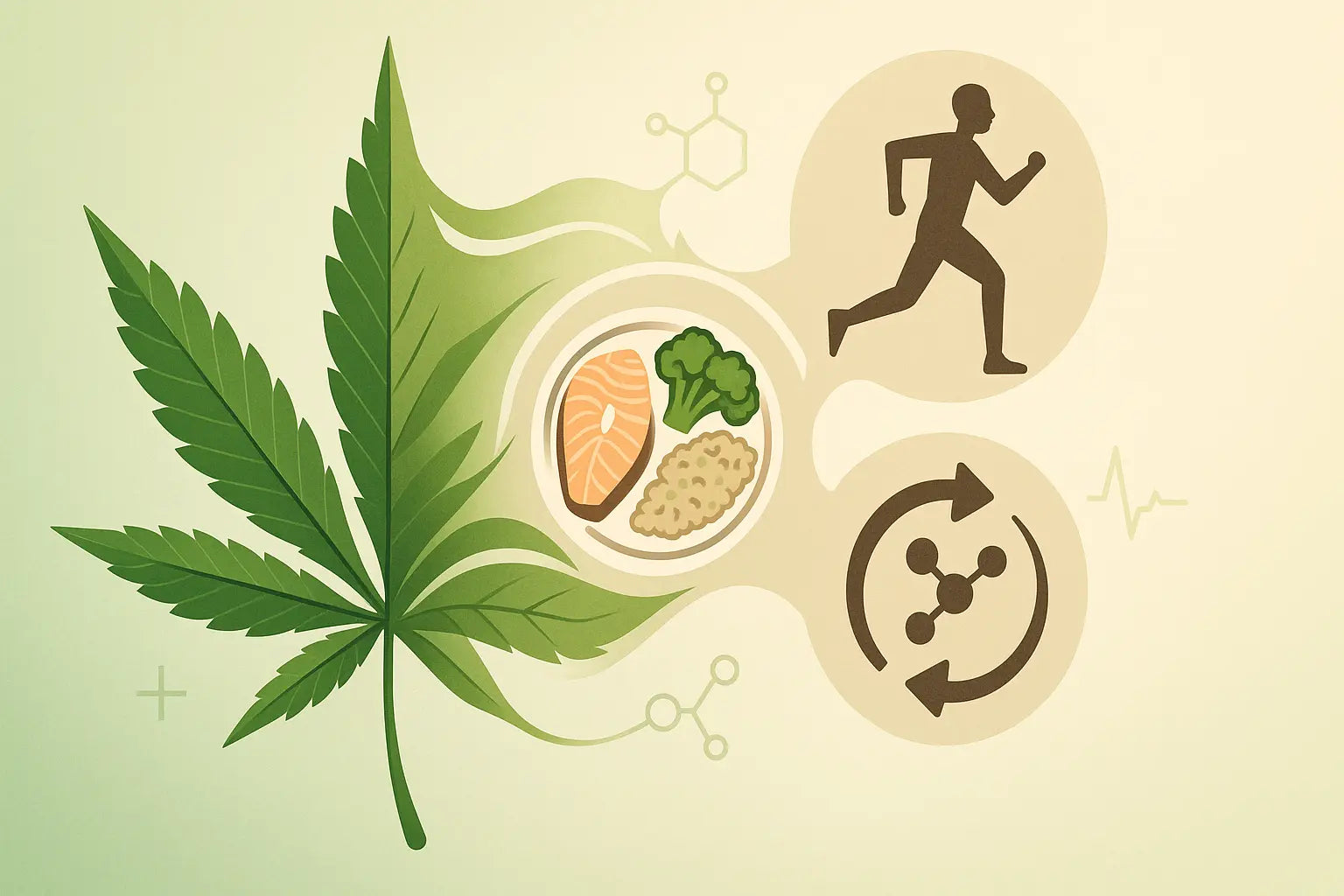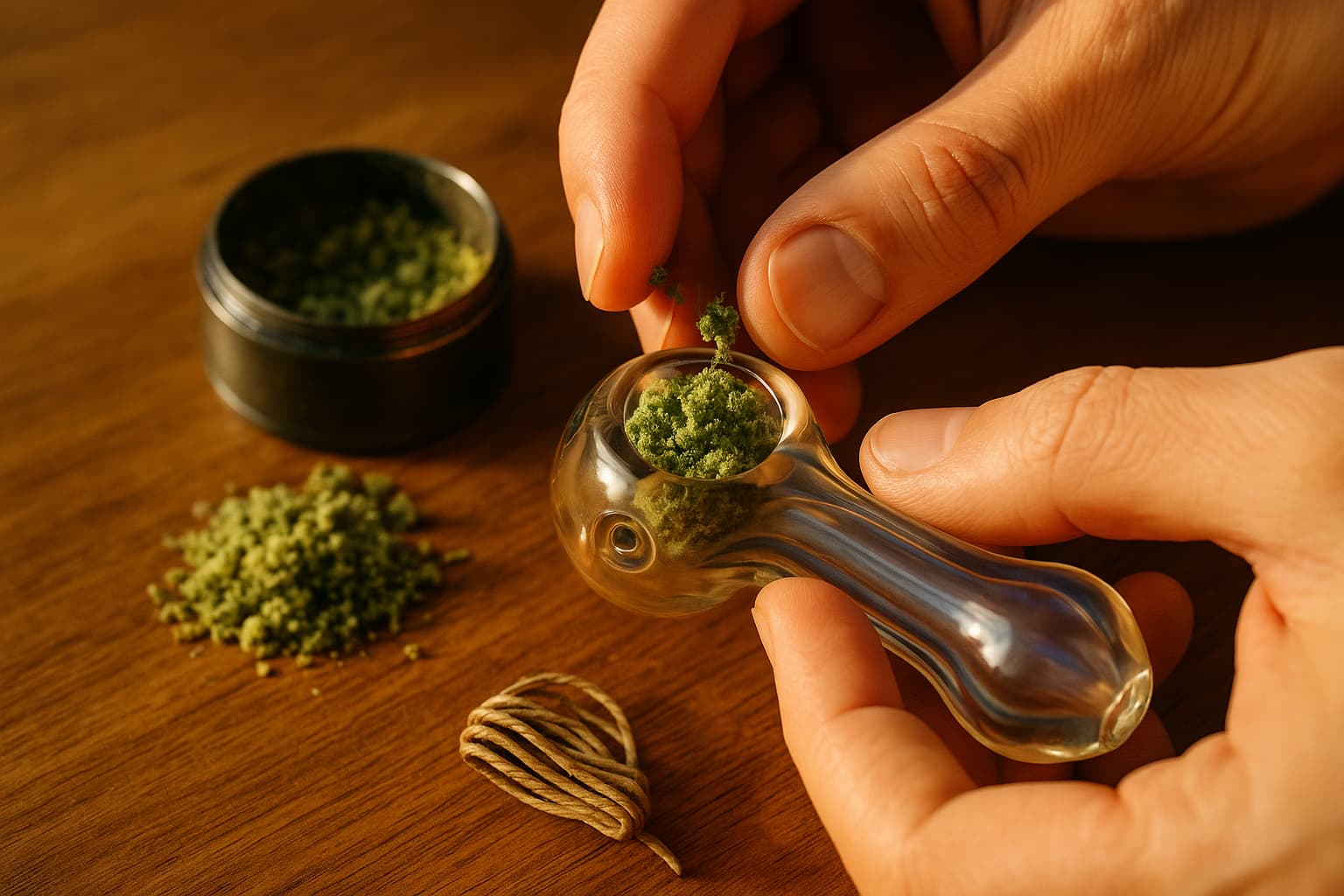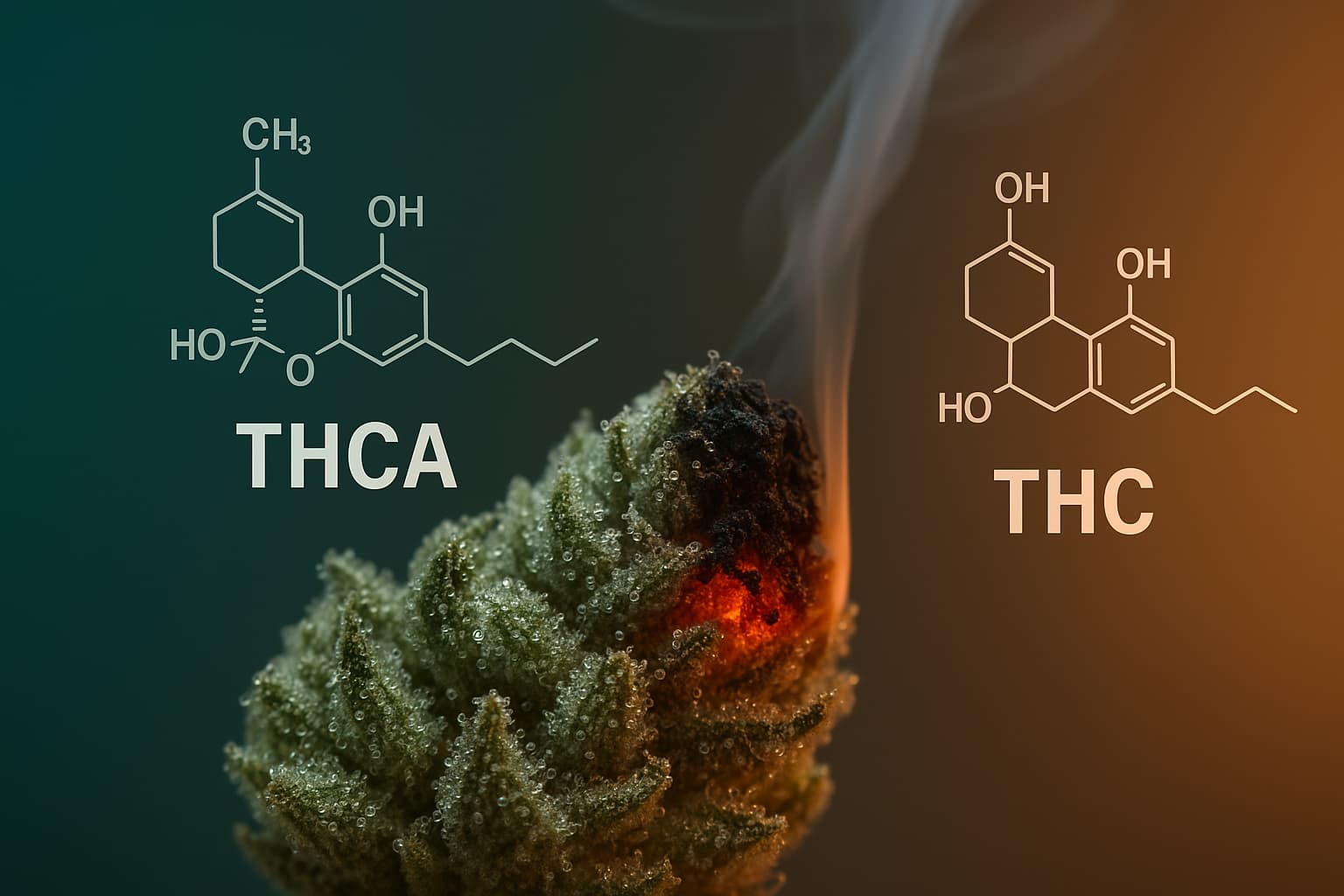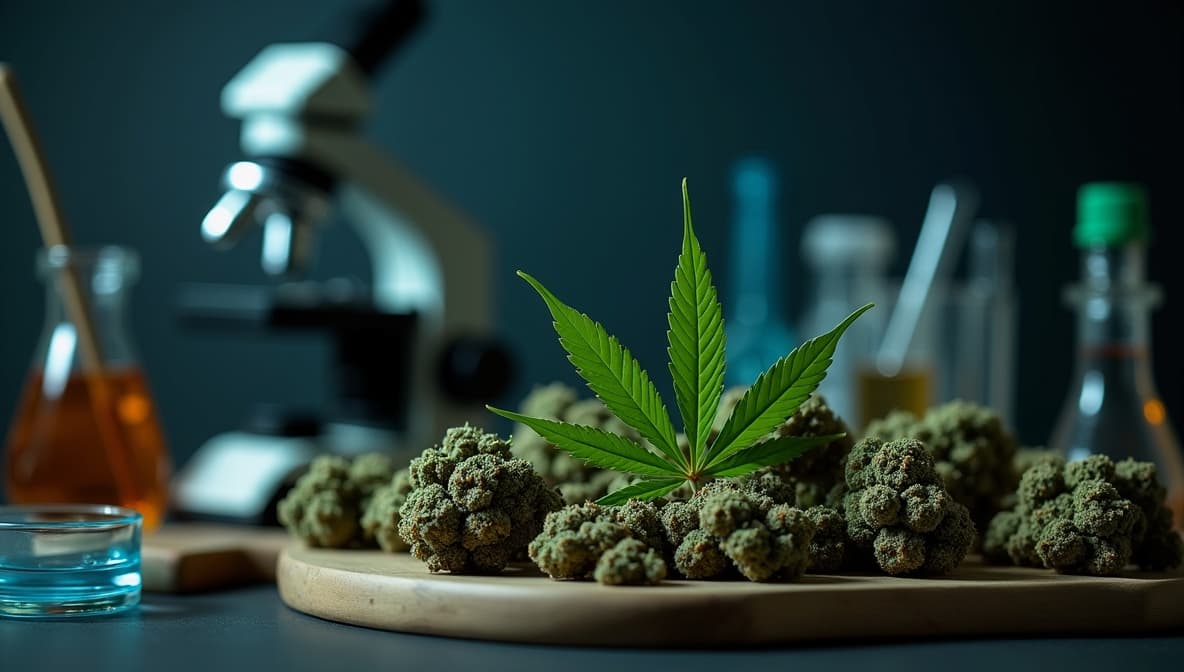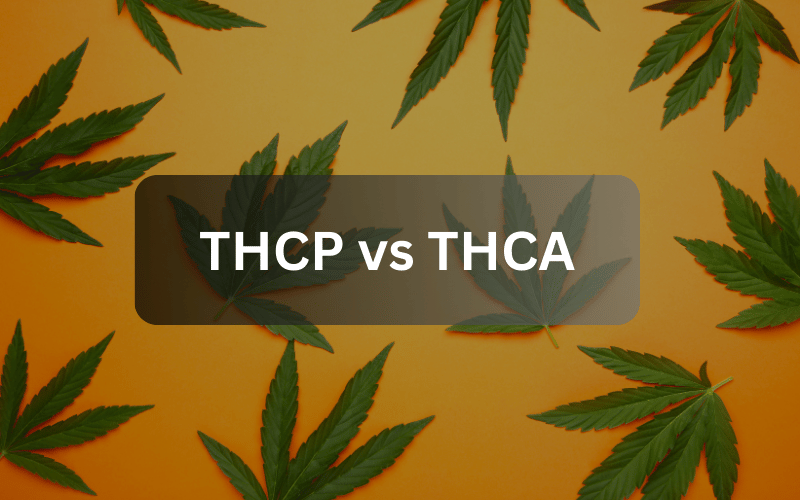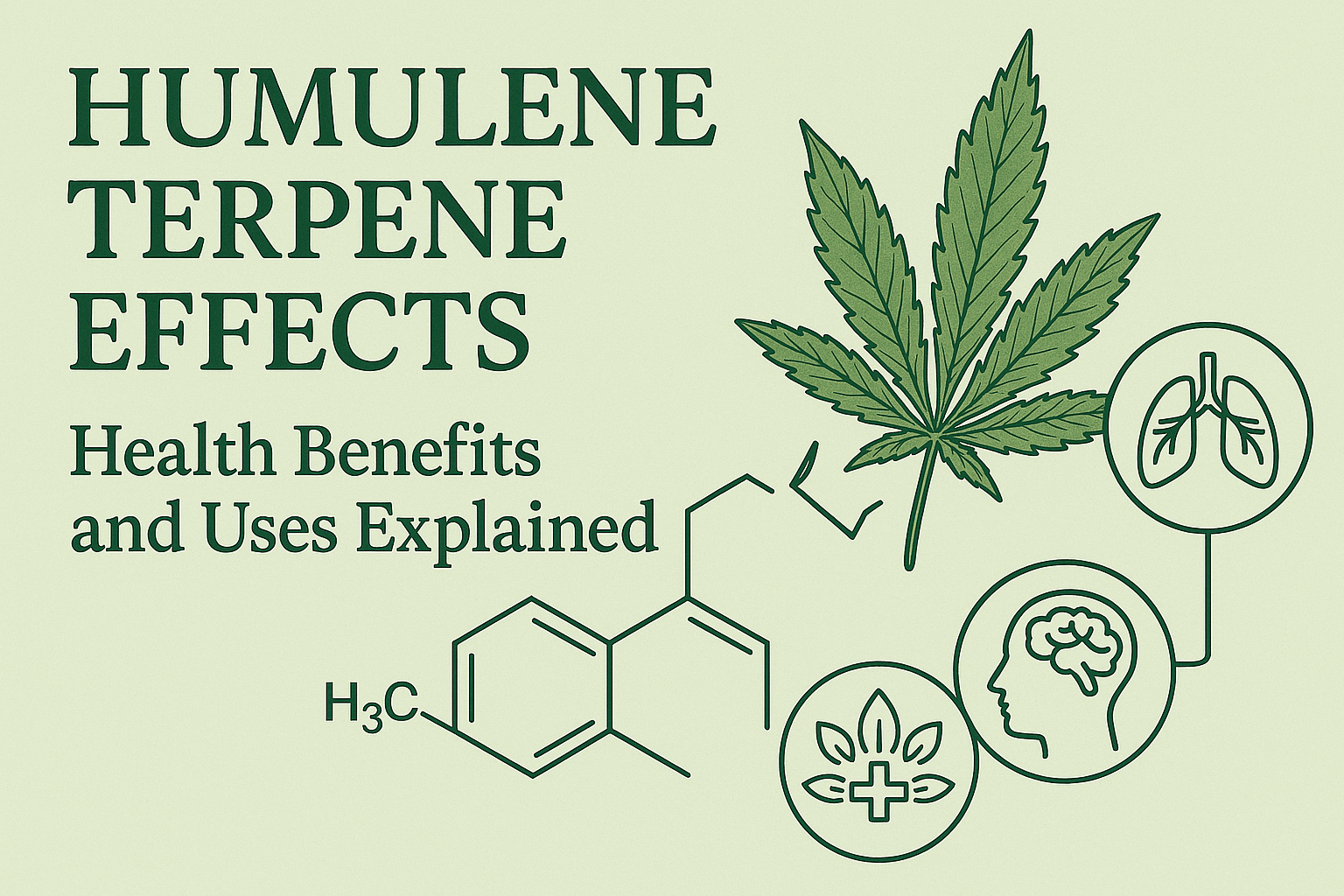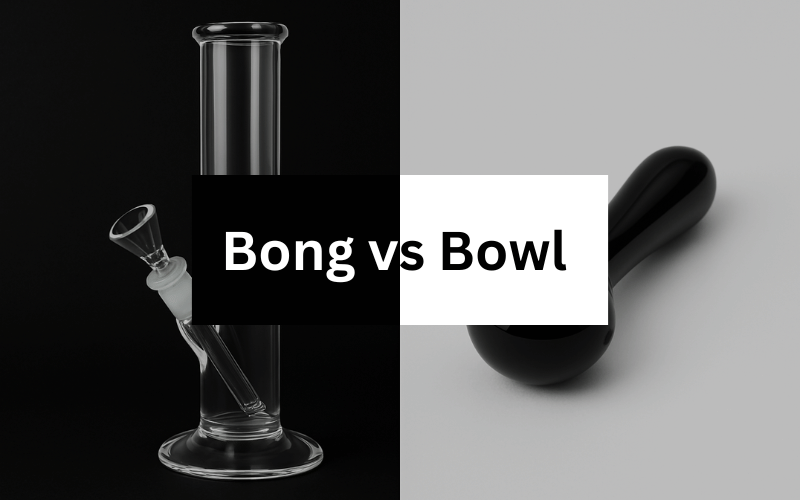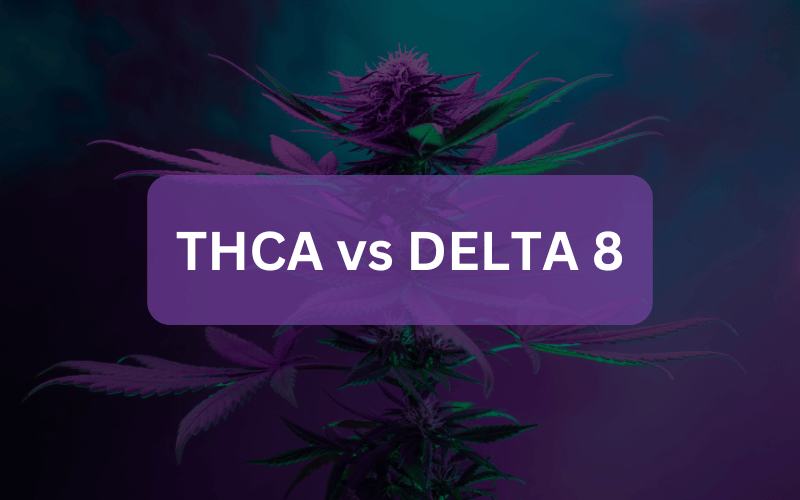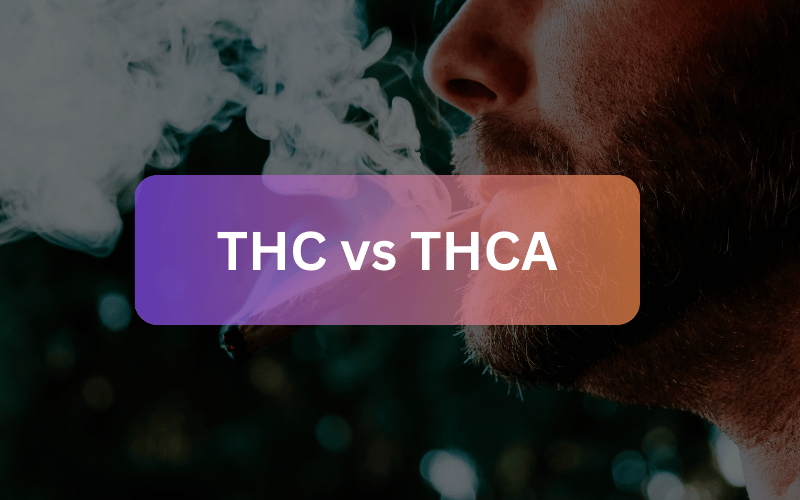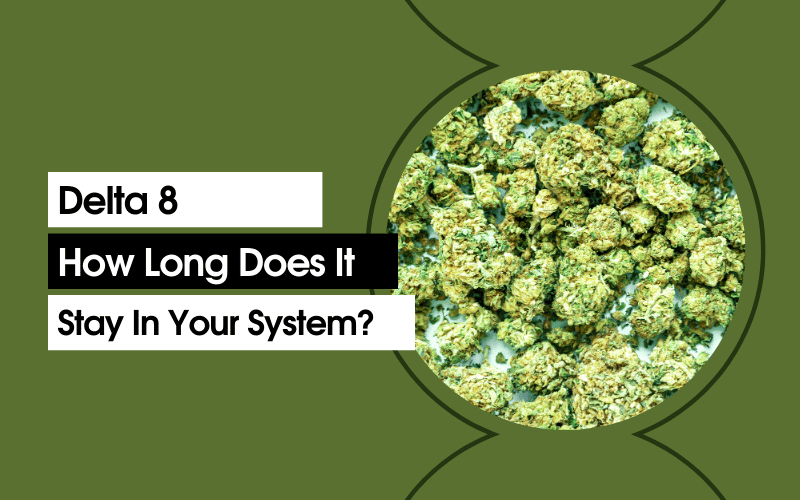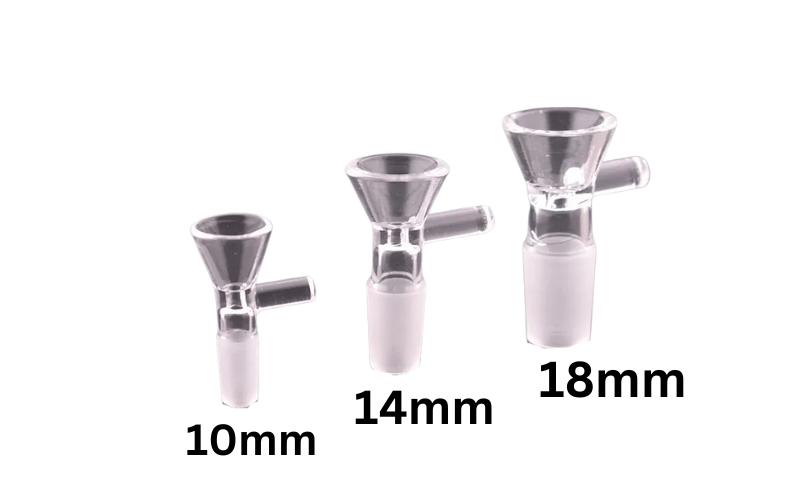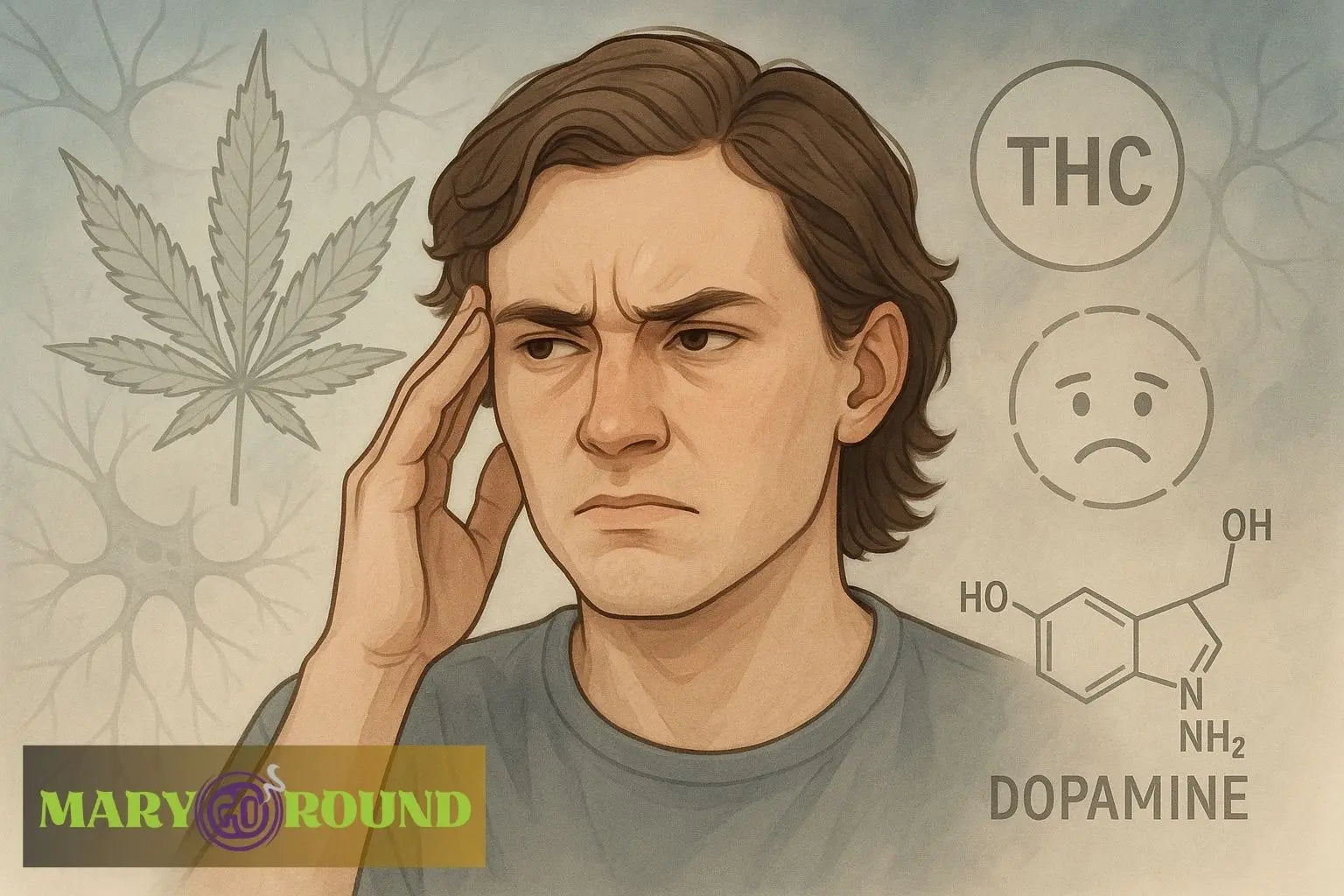
Can THC Make You Irritable? Understanding It´s Effects
Posted by Tom Wittneben on
Can THC make you irritable? To answer straightforwardly, it can.
THC, the main component in cannabis, can lead to irritability and mood swings, especially with high doses or chronic use.
This article will explain why this happens and offer tips to manage these effects.
Key Takeaways
-
THC can both alleviate and exacerbate mood disorders, causing increased irritability particularly with high doses or chronic use.
-
Cannabis withdrawal syndrome commonly features irritability as a prominent symptom, making cessation challenging for many users.
-
Individual risk factors, including genetic predisposition and pre-existing mental health conditions, play a significant role in how THC affects irritability.
The Impact of THC on Mood and Irritability
Cannabis use has a complex relationship with mood and irritability. On one hand, THC, the main psychoactive component of cannabis, can provide relaxation and stress relief. THC is primarily responsible for the euphoric ‘high’ associated with cannabis use.
On the other hand, it can also lead to mood swings and increased irritability, particularly with excessive cannabis use. People who consume cannabis may experience these changes in mood and behavior due to THC's effects on the brain and emotional regulation.
Understanding THC’s interaction with the brain’s reward system and its dose-dependent effects helps explain why some marijuana users might face adverse emotional reactions.
The endocannabinoid system, which regulates emotional behavior, plays an important role in how cannabis affects our moods. THC affects this system by binding to cannabinoid receptors, influencing emotional processing and potentially leading to irritability caused by chemicals. Specifically, THC interacts with the body's endocannabinoid system and binds to CB1 receptors, which regulate feelings of anxiety and general mood, further explaining its impact on emotional states.
THC can also cause altered perception, changing how users experience sensory input and time. This can affect how we perceive and respond to various stimuli, affecting our overall emotional state and general mood.
Tracking Mood Changes
Keeping a detailed mood journal is a powerful way to understand how THC affects your emotions and identify specific triggers for irritability. Establishing a consistent tracking practice helps you make informed adjustments to your consumption habits and supports overall emotional wellbeing.
How to Create a Mood Journal
Start with a simple daily log that captures key information:
 Keeping entries consistent, no matter how brief they are, allows you to track patterns over time, revealing which doses, methods, or contexts correlate with irritability or improved mood.
Keeping entries consistent, no matter how brief they are, allows you to track patterns over time, revealing which doses, methods, or contexts correlate with irritability or improved mood.
Digital Mood-Tracking Apps
For those who prefer digital tools, several apps offer convenient ways to log and analyze mood data:
-
Daylio: A user-friendly app allowing mood and activity tracking with visual graphs to spot trends easily.
-
Moodpath: Designed to monitor emotional wellbeing and provide mental health resources based on your entries.
-
Moodnotes: Combines mood tracking with cognitive-behavioral therapy techniques to help identify thinking patterns.
These apps often send daily reminders, making it easier to maintain the habit and reflect on your emotional responses to THC use.
How THC Affects the Brain's Reward System
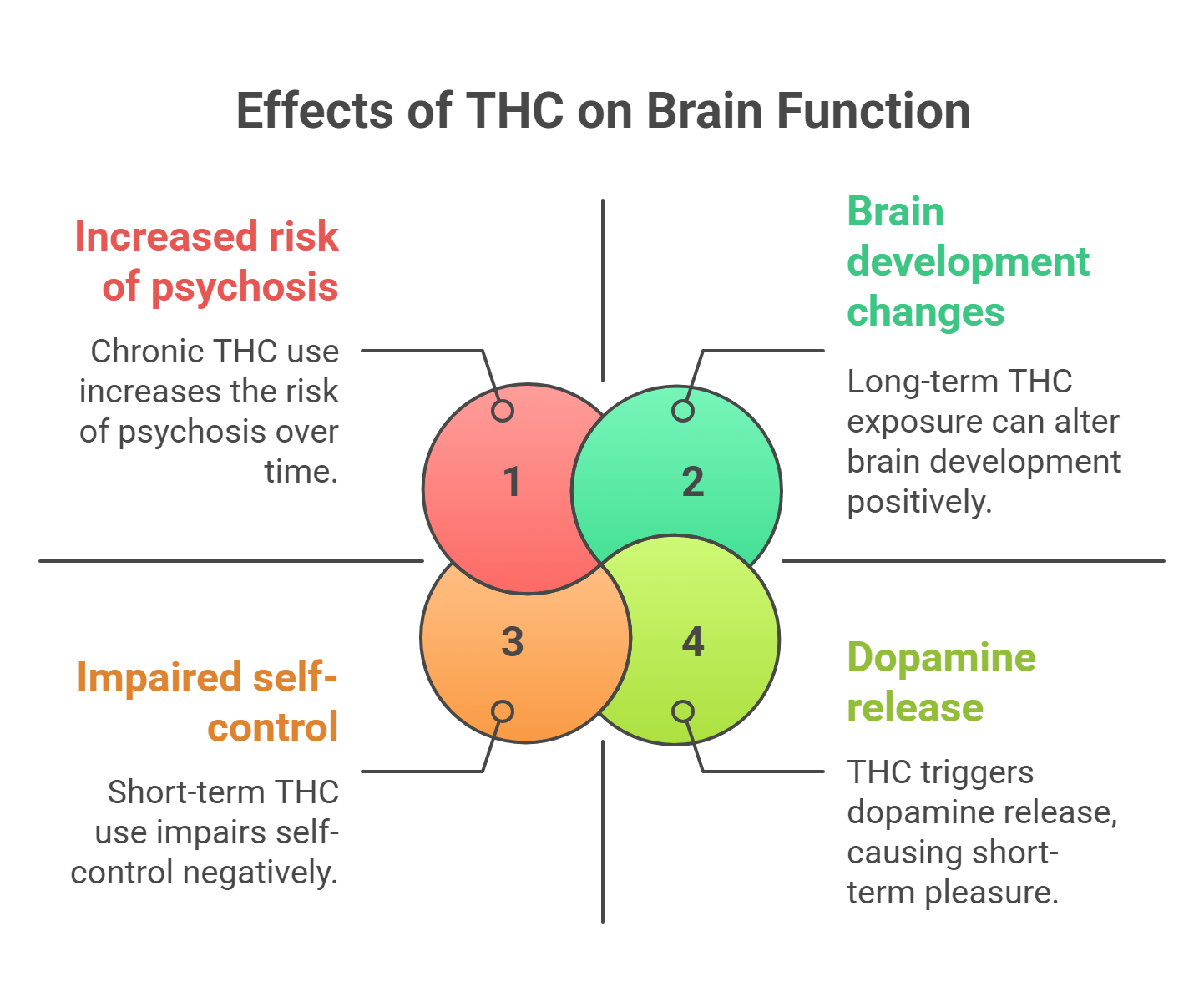
THC binds to cannabinoid receptors, particularly CB1 receptors, in the brain’s reward system, triggering dopamine release. This interaction can lead to the pleasurable feelings many cannabis users seek.
However, it also affects key brain areas like the amygdala and prefrontal cortex, which are essential for emotional regulation. THC’s impact on the prefrontal cortex can impair self control and increase the likelihood of impulsive behaviors, which may contribute to agitation, anger, or even violence in some users.
This can result in altered emotional responses and increased irritability for some individuals.
Chronic marijuana users may experience changes in brain development and dopamine systems due to long-term THC exposure. This can lead to impaired emotional processing and heightened irritability over time.
Frequent cannabis use may also increase the risk of experiencing psychosis and schizophrenia. Recognizing these effects helps cannabis users make informed decisions about their marijuana use patterns.
Dose-Dependent Effects of THC on Mood
The effects of THC on mood can vary significantly based on the dosage consumed. Lower doses, typically 7.5mg or less, tend to provide relaxation and stress relief, making users feel more at ease.
However, higher doses, such as 12.5mg and above, are linked to heightened anxiety levels and increased irritability.
Recognizing the dose-dependent effects of THC is key to managing mood-related outcomes. Chronic marijuana users who consume high doses are more likely to experience mood swings and increased irritability compared to those who consume lower doses.
High potency strains of cannabis, which contain higher levels of THC, are especially associated with increased irritability and adverse emotional effects.
THC and Emotional Responses
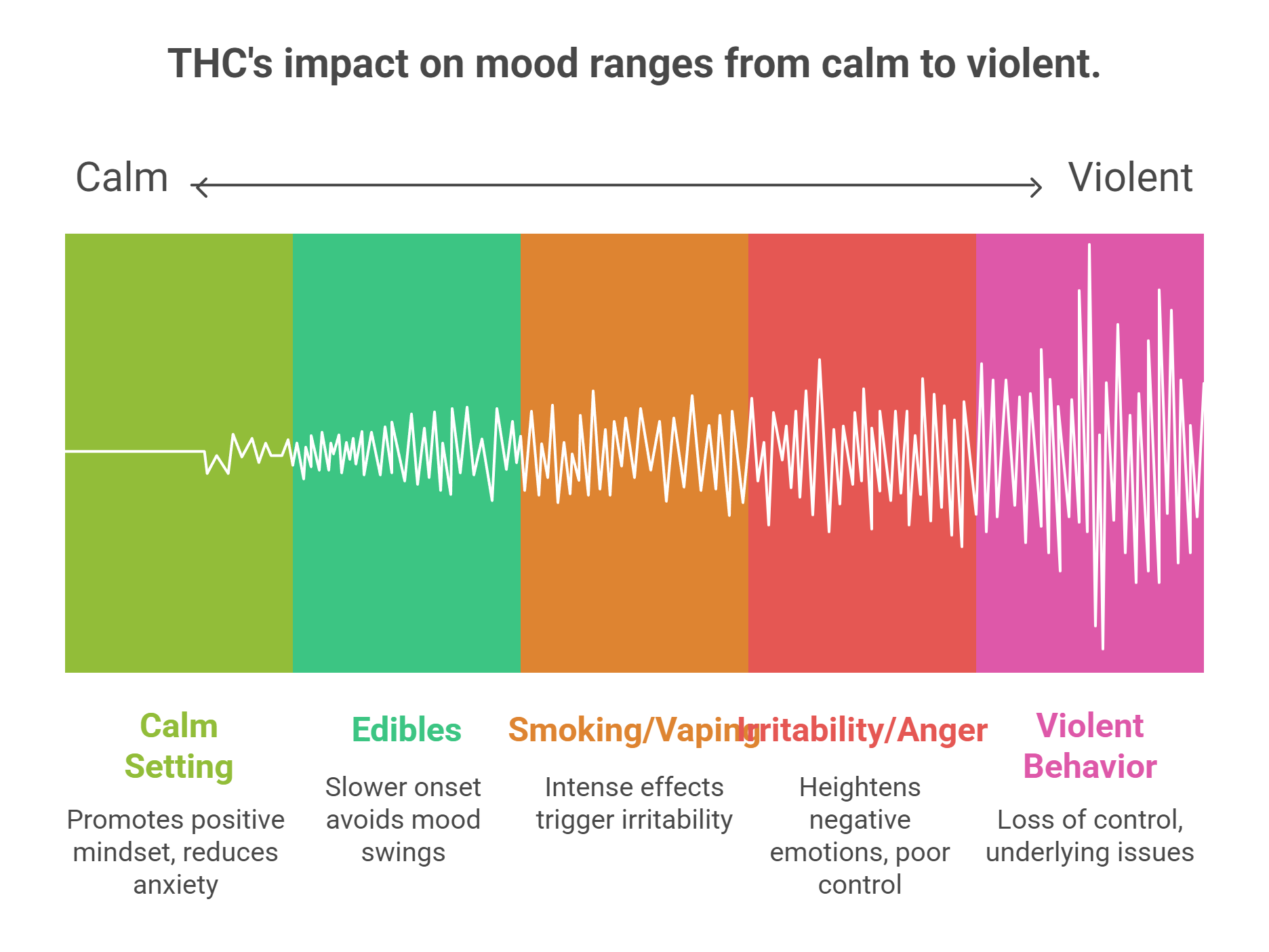
THC acts as a mood amplifier, heightening both positive and negative emotional states. For some, this means an enhanced feeling of relaxation and euphoria.
Meanwhile, for others, particularly those with pre-existing irritability or anger issues, THC can amplify these negative emotions. Excessive cannabis use can lead to poor emotional control, complicating mood regulation.
In some cases, this loss of control may contribute to violent behaviour, especially in individuals with underlying mental health issues.
Environmental and Contextual Influences
Beyond individual factors such as genetics and mental health, environmental and contextual elements play an important role in how THC affects mood and irritability. The setting where cannabis is consumed can either mitigate or exacerbate adverse emotional responses.
Calm vs. Stressful Setting:
Consuming THC in a relaxed, comfortable environment, such as a quiet room with trusted companions, can help reduce the likelihood of irritability or anxiety.
A calm setting promotes a positive mindset, allowing THC’s calming properties to take effect. Conversely, using cannabis in high-stress or chaotic environments may increase feelings of unease and irritability, as external stressors compound THC’s effects on brain chemistry.
Method of Consumption:
The way cannabis is consumed also influences the onset and intensity of effects, which in turn impacts irritability levels. Smoking or vaping delivers THC rapidly to the bloodstream, producing quick, intense effects that can sometimes overwhelm sensitive users and trigger irritability or anxiety.
In contrast, oral consumption methods like edibles produce a slower onset, providing a more gradual and often longer-lasting experience. This mellow build can help some users avoid sudden mood swings or irritability associated with rapid THC spikes.
Users prone to irritability may benefit from choosing slower-onset consumption methods and carefully selecting their environment to improve calm and focus. Being mindful of these contextual factors increases the overall experience and supports emotional balance during cannabis use.
The relationship between THC and anger is not fully understood, but it is clear that THC can amplify feelings of anger and irritability that a person may already be experiencing, especially when feeling angry. Factors such as personality traits and socioeconomic status can also influence how cannabis use affects emotional responses and make you angry.
Cannabis Withdrawal Syndrome and Irritability
Cannabis withdrawal syndrome is a condition that can occur after stopping chronic cannabis use. One of the most common symptoms of withdrawal is irritability.
Many individuals experience heightened feelings of anger and aggression during withdrawal, which can make the process of quitting cannabis particularly challenging.
Recognizing and managing cannabis withdrawal symptoms is highly important for anyone looking to reduce or stop their use. Withdrawal symptoms typically peak within the first week and can last up to three weeks or more. Being prepared for these symptoms can help individuals navigate the withdrawal process more effectively, especially by engaging the power of pre-decision.
Symptoms of Cannabis Withdrawal
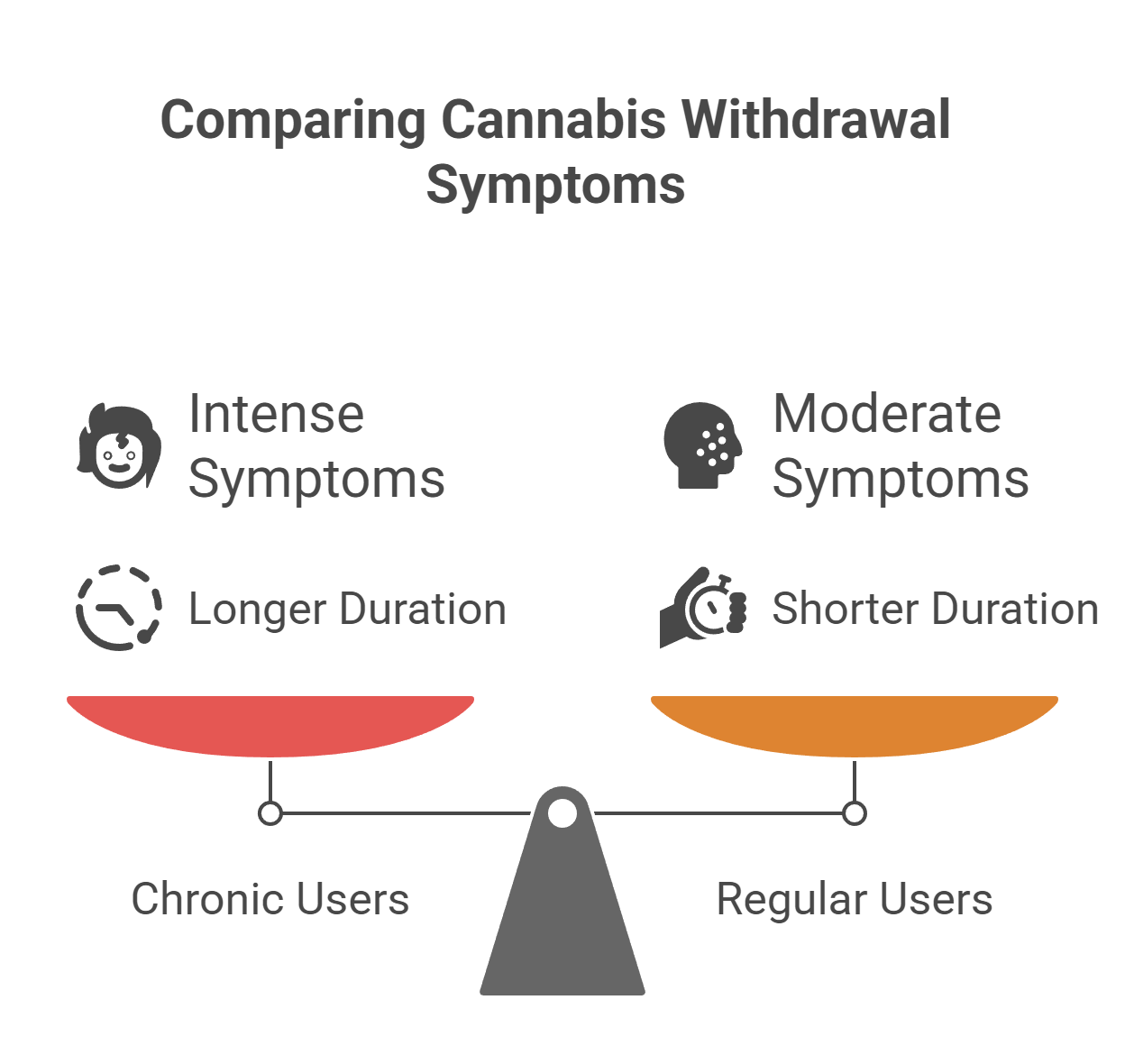
Common withdrawal symptoms experienced by regular cannabis users include:
-
Irritability,
-
Mood swings,
-
Increased aggression,
-
Disrupted sleep,
-
Restlessness,
-
Anxiety.
Symptoms of cannabis withdrawal typically include disrupted sleep, restlessness, irritability, and anxiety, which can make the cessation process particularly challenging for chronic users.
-
Irritability,
-
Mood swings,
-
Increased aggression,
-
Disrupted sleep,
-
Restlessness,
-
Anxiety.
These symptoms often peak between two to six days after cessation and can be particularly intense for chronic users and regular users, especially when smoke is involved.
For heavier users, withdrawal symptoms can last up to three weeks, with the worst symptoms likely disappearing within five weeks. Monitoring these symptoms and understanding their duration can help individuals manage their expectations and seek appropriate support if needed.
Managing Withdrawal Symptoms
A multifaceted approach involving lifestyle changes and professional support is needed to manage cannabis withdrawal symptoms. Therapeutic approaches such as cognitive-behavioral therapy (CBT) can effectively address cannabis-related irritability. Therapists specializing in addiction can provide tailored strategies for managing irritability due to cannabis.
Support groups and other therapeutic options can also be beneficial for individuals experiencing withdrawal symptoms. Seeking support and implementing coping strategies can significantly improve the withdrawal experience and help individuals maintain emotional stability during this challenging time.
Individual Risk Factors for THC-Induced Irritability
Individual risk factors play a significant role in determining whether cannabis use will lead to irritability. Frequent cannabis use can lead to worsening mental health and increased aggression.
Factors such as genetic predisposition, pre-existing mental health conditions, and chronic use can exacerbate the likelihood of experiencing THC-induced irritability. Similar risk factors can also influence how individuals respond to other drugs, not just cannabis.
Genetic Predisposition
Genetic factors can also influence how individuals respond to THC and their likelihood of experiencing irritability. Certain genetic markers such as CNR1 may increase the risk of this irritability, making it important for individuals to be aware of their genetic predispositions.
Ongoing research and other studies into genetic predisposition and THC response indicate that genetics may influence emotional reactions to cannabis as a substance, aiding individuals in managing their consumption and expectations to find the right strain.
Pre-existing Mental Health Conditions
Individuals with pre-existing mental health conditions, such as anxiety or mood disorders, may experience intensified irritability when using cannabis. These conditions can exacerbate the negative emotional effects of THC, making it crucial for individuals with such conditions to approach cannabis use with caution, especially if they are dealing with poor mental health. Additionally, cannabis use has been linked to worsening symptoms in individuals with post-traumatic stress disorder, further emphasizing the need for careful consideration in these cases.
Chronic Use and Tolerance
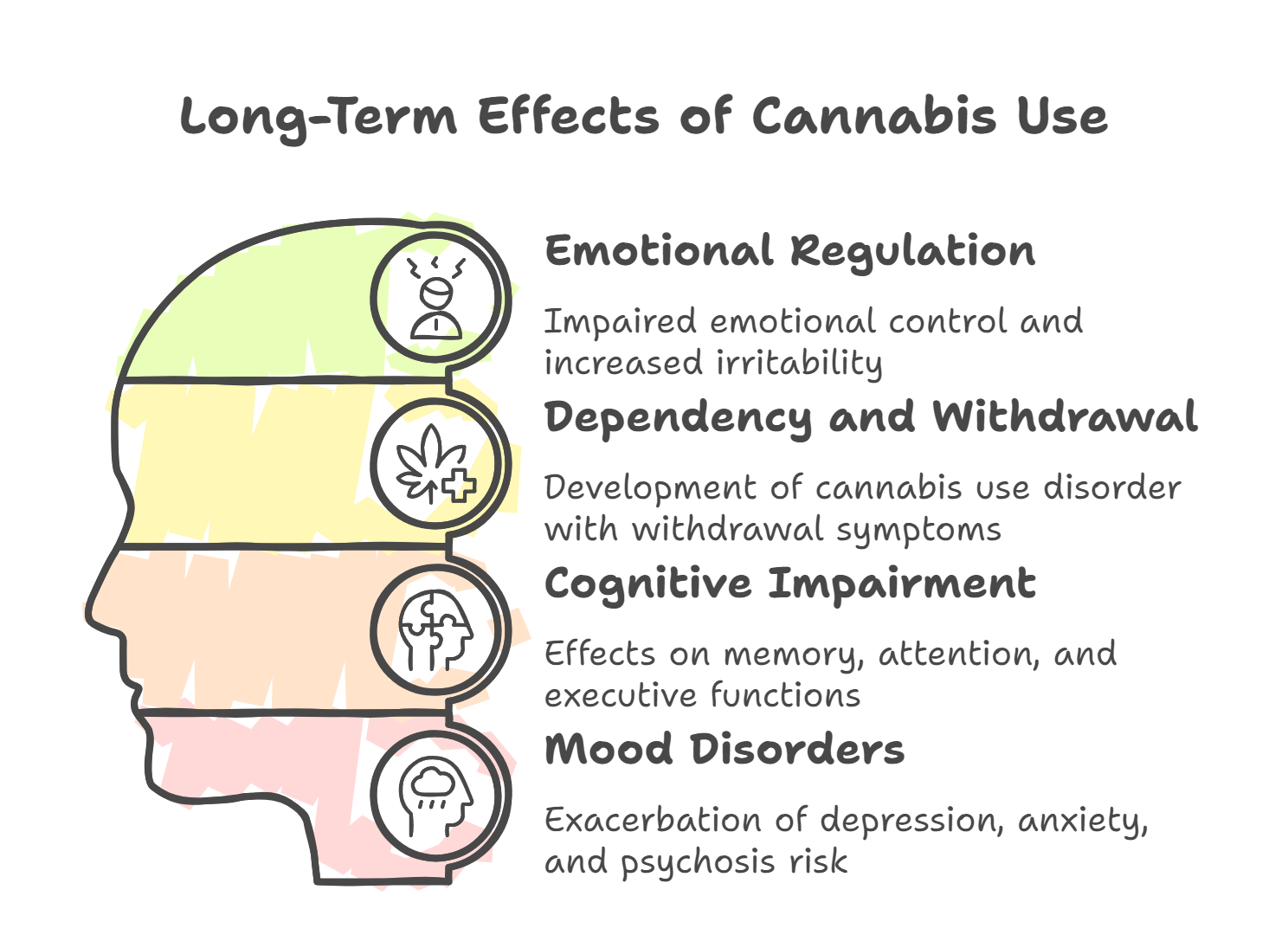
Long-term cannabis use can impair emotional regulation and contribute to increased irritability over time. Chronic users may develop a tolerance to THC, requiring higher doses to achieve the same calming effects, which can further exacerbate irritability.
Long-Term Mental Health Considerations
While THC can offer therapeutic and recreational benefits, chronic and heavy use carries potential long-term mental health risks that users should consider carefully.
Dependency and Withdrawal:
Regular high-dose THC consumption may lead to cannabis use disorder, characterized by dependence and withdrawal symptoms such as irritability, insomnia, and anxiety when not using. Though generally less severe than other substances, dependency can impact daily functioning and quality of life.
Cognitive Impairment:
Long-term THC use, especially when initiated during adolescence or young adulthood, has been linked to impairments in memory, attention, and executive functioning. These effects may persist beyond periods of intoxication and can affect academic, occupational, and social performance.
Mood Disorders and Psychiatric Symptoms:
Chronic THC use may exacerbate mood disorders such as depression and anxiety in susceptible individuals. Most notably, it can increase the risk or precipitate symptoms of psychosis and schizophrenia in those with underlying vulnerabilities. Even in non-vulnerable users, heavy use may contribute to emotional dysregulation.
It is important to balance benefits with these risks and to use THC responsibly, monitoring patterns of use, dose, and mental health status. Consulting healthcare professionals and considering periodic breaks or dose adjustments can help mitigate adverse outcomes.
Understanding the Paradox of Cannabis as a Mood Regulator
Cannabis is often used for its mood-regulating properties, but its effects can be paradoxical. Initially, cannabis use can provide immediate relief from stress and anxiety, but chronic use often leads to increased irritability and worsened mood regulation over time. This paradox highlights the importance of understanding both the short-term and long-term effects of cannabis use on mood.
Personal experiences and background can significantly shape how THC affects irritability levels, making it essential to consider individual differences when evaluating cannabis use.
Initial Relief vs. Long-Term Effects
Many people use cannabis for its calming effect and pleasurable feelings, providing immediate relief from stress and anger. However, chronic use of cannabis can lead to worsened emotion regulation and increased irritability over time. The initial benefits of cannabis use can be overshadowed by these long-term negative effects.
Understanding the psychological effects of cannabis and the different effects of potential negative long-term outcomes is crucial for managing its use effectively. Identifying the difference between short-term relief and long-term consequences aids in making informed decisions about cannabis consumption.
The Role of CBD in Mood Regulation
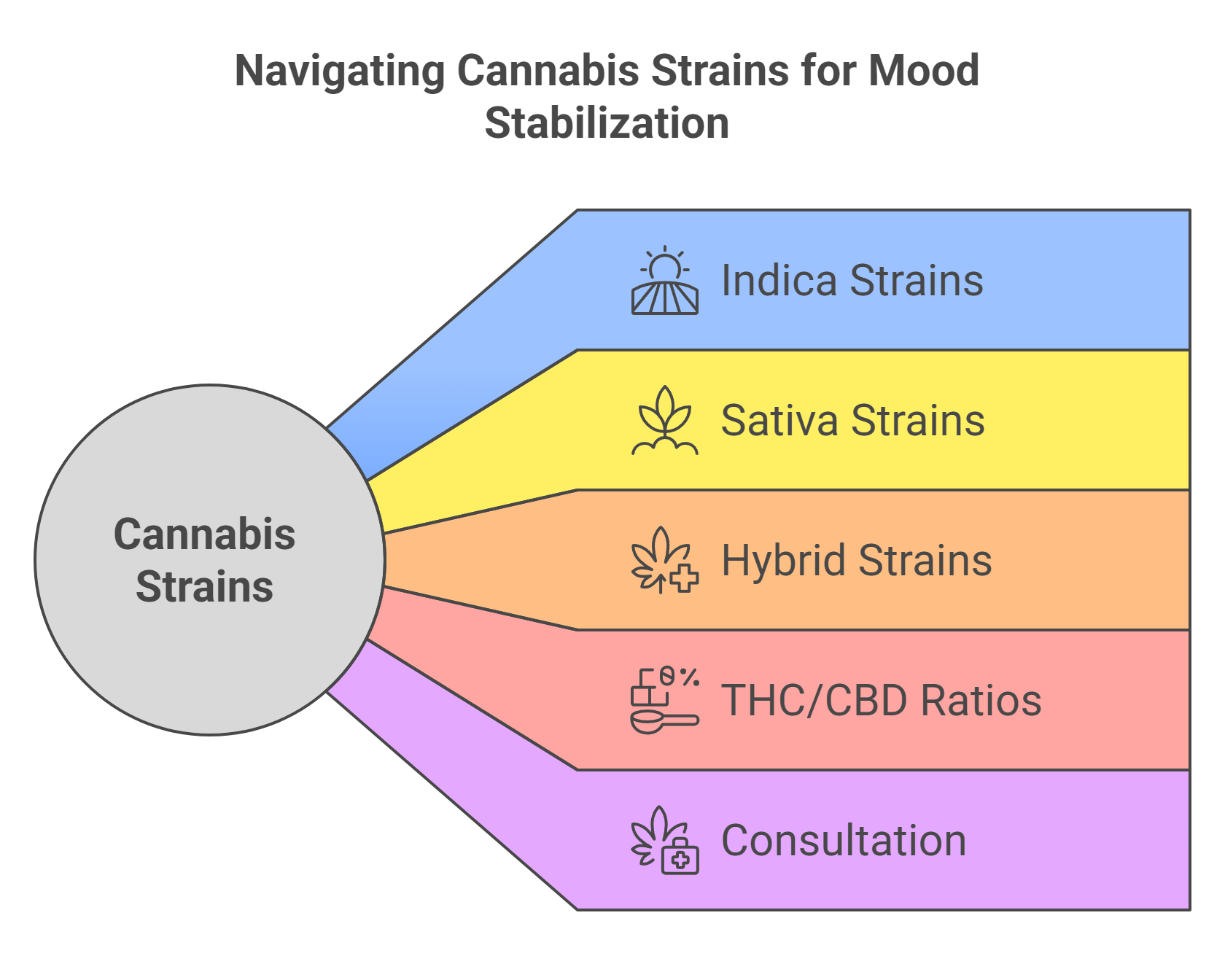
CBD, a non-psychoactive component of cannabis, is recognized for its potential to improve mood and reduce anxiety without the intoxicating effects associated with THC.
Unlike THC, CBD does not typically induce irritability, making it a favorable option for those seeking mood stabilization. Strains of cannabis with a higher CBD content, like Harlequin and Cannatonic, may help in reducing feelings of anger and irritability due to the calming effects of CBD.
Choosing the Right Strain
Different strains, such as indica, sativa, and hybrids, have varying effects on the mind and body, largely due to their cannabinoid and terpene profiles, so it’s important to know the difference in strain so as to know what strain best fits.
Indica Strains: Typically associated with calming and relaxing effects, indica strains can help alleviate irritability by promoting a sense of physical and mental calm. They are often preferred in the evening or when relaxation is the goal.
Sativa Strains: Known for their uplifting and stimulating properties, sativas can sometimes increase anxiety or irritability in sensitive individuals due to their energizing effects. If you’re prone to irritability, it may be best to approach sativas cautiously.
Hybrid Strains: Hybrids combine traits of both indica and sativa plants, offering a balanced experience. For those sensitive to irritability, hybrids with balanced THC and CBD levels can provide mood stabilization without overstimulation.
Regarding THC/CBD ratios, higher THC levels can increase the risk of irritability or anxiety, especially in inexperienced users. Incorporating CBD can counteract some unwanted effects of THC.
Strains with a balanced THC to CBD ratio (for example, a 1:1 or 2:1 ratio favoring THC but including significant CBD) are often recommended for those prone to irritability.
When selecting a strain, consult with knowledgeable dispensary staff or healthcare providers familiar with cannabinoid profiles. Testing small doses and monitoring reactions can also help identify which strains best suit your mood and wellbeing.
CBD interacts differently with the brain, often promoting relaxation and reducing anxiety without the irritability associated with THC.
Recognizing CBD’s role in mood regulation helps individuals select the right cannabis products for emotional well-being. The best strains for anger management typically contain high levels of CBD alongside THC, offering a balanced approach to mood stabilization.
Strategies for Managing THC-Related Irritability
Managing THC-related irritability involves a combination of strategies, including:
-
Dosage reduction,
-
Self-awareness,
-
Seeking professional help,
-
Practicing mindfulness,
-
Engaging in regular physical activity.
A strategic combination of these approaches, will help you effectively manage irritability related to cannabis use and other drugs.
Practical Examples
Managing THC-related irritability becomes more effective when you have concrete strategies to follow. Here are some actionable examples to guide you:
Mindfulness Breathing Exercise
Incorporating mindfulness can greatly reduce irritability and promote relaxation. Try this simple 5-minute breathing meditation:
-
Inhale slowly through your nose for 4 seconds.
-
Hold your breath for 4 seconds.
-
Exhale gently through your mouth for 4 seconds.
-
Pause for 4 seconds before repeating.
-
Focus fully on your breath and the rhythm, gently bringing your attention back if your mind wanders.
Seeking Professional Help
If irritability persists or affects your quality of life, consulting a healthcare professional can provide tailored support. Cognitive Behavioral Therapy (CBT) is an evidence-based approach often recommended for irritability and mood regulation. To find a qualified CBT therapist:
-
Ask your primary care provider for referrals.
-
Use trusted online therapist directories (e.g., Psychology Today, BetterHelp).
-
Contact your insurance provider to check covered mental health services.
Collaborating with a therapist enables you to learn coping strategies and address underlying issues contributing to irritability.
Dosage Reduction and Usage Patterns
Gradually reducing THC intake can help alleviate irritability linked to its use. Reducing cannabis use frequency can improve emotional stability and decrease mood swings.
Sample Dosage Reduction Plan
If you are looking to reduce THC intake gradually to ease irritability, consider a structured tapering schedule. For instance, if your current daily dose is 15mg, you might reduce your dose by 1mg each day or every two days, aiming to reach 7.5mg over a two-week period. This gradual decrease minimizes withdrawal effects while allowing your system to adjust comfortably. Tracking your progress in a journal or app can help maintain motivation and notice improvements.
This approach allows users to find a balance that minimizes adverse effects while still benefiting from cannabis use.
Self-Awareness and Coping Strategies
Self-awareness helps recognize patterns and triggers leading to THC-related irritability. Strategies such as engaging in regular physical activity, mindfulness practices, and social support can help mitigate irritability related to THC.
If irritability continues to be problematic, seeking professional help can provide additional coping strategies and support. Developing self-awareness and implementing effective coping strategies can significantly improve emotional regulation, especially after a difficult day.
Seeking Professional Help
Professional help is of high priority for those struggling with severe cannabis-related irritability. Professional support can help manage triggers and regulate emotions effectively, providing tailored strategies for managing irritability due to cannabis.
If individuals experience intense agitation related to cannabis use, they should contact a professional for assessment and guidance. Professional help can make a significant difference in managing THC-related irritability and improving overall well-being.
Summary
Wrapping up, understanding the impact of THC on mood and irritability is essential for managing cannabis use effectively. THC can provide immediate relief from stress and anxiety, but its long-term use can lead to increased irritability and mood swings.
Implementing strategies such as dosage reduction, self-awareness, and seeking professional help can significantly improve emotional stability and overall well-being.
Frequently Asked Questions
Can THC make you irritable?
THC can indeed make you irritable, particularly with higher doses or long-term use, as it may intensify negative emotions and contribute to mood swings.
What are the common symptoms of cannabis withdrawal?
Cannabis withdrawal commonly presents with irritability, mood swings, increased aggression, disrupted sleep, restlessness, and anxiety. These symptoms usually peak within the first week and may persist for several weeks.
How can I manage irritability related to THC use?
To manage irritability related to THC use, consider gradually reducing your THC intake, practicing mindfulness, and incorporating regular physical activity into your routine. If needed, don't hesitate to seek professional help for additional support.
Are there any genetic factors that influence THC-induced irritability?
Yes, genetic factors do influence the likelihood of THC-induced irritability, as specific genetic markers can affect individual emotional responses to THC. Understanding your genetic predispositions may help in managing these effects.
What is the role of CBD in mood regulation compared to THC?
CBD plays a beneficial role in mood regulation by potentially improving mood and reducing anxiety without the intoxicating effects of THC. This makes CBD a preferable option for those looking to stabilize their mood without experiencing irritability.

